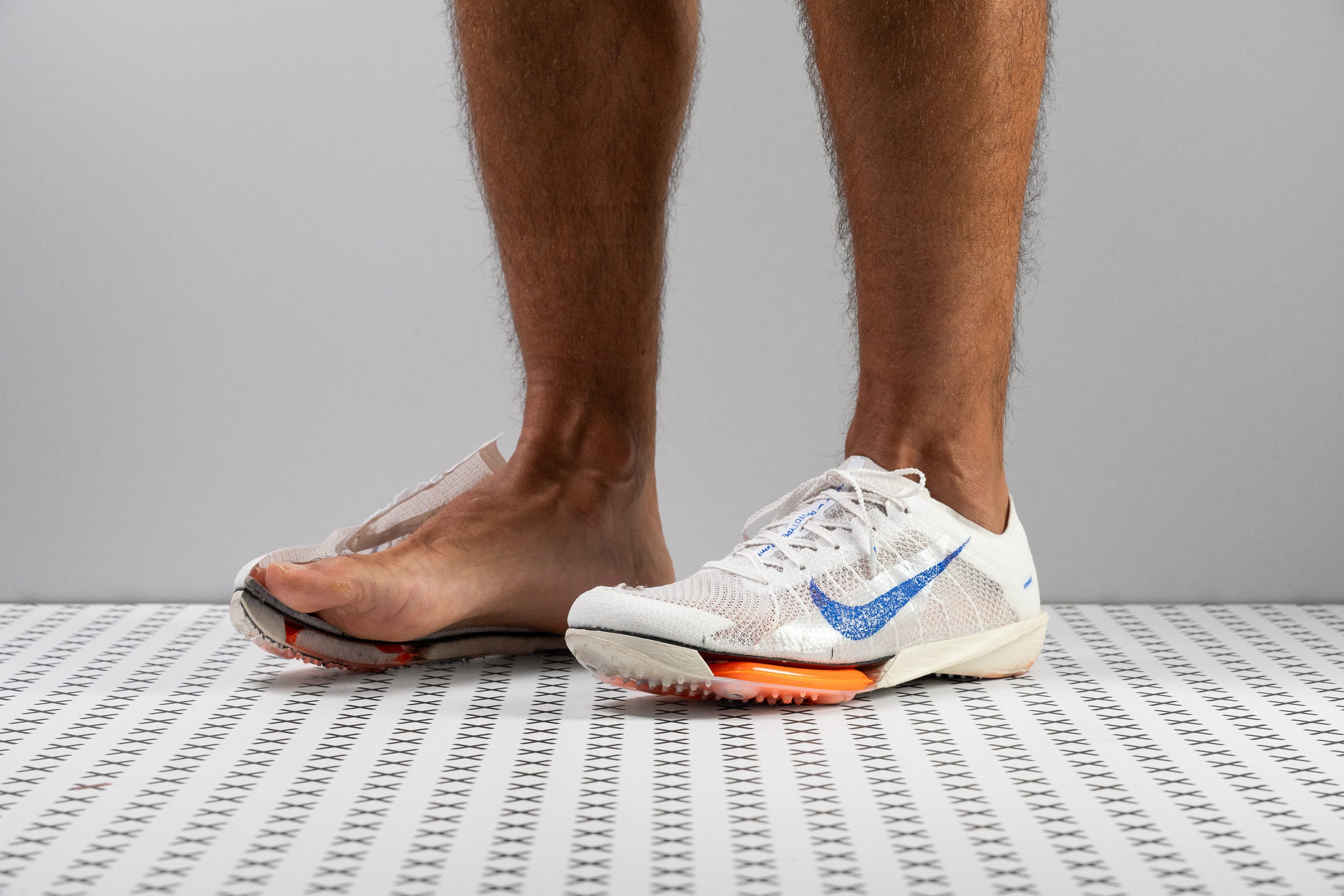Our verdict
- Top pick in best running spikes
- Top pick in best Nike running spikes
Pros
- Exhilarating ride
- Breathable, snug-fitting upper
- Propulsive Air Zoom units
- Versatile for mid-to-long distances
- Lightweight
- Improved 4-pin outsole
- Built for smashing PBs
Cons
- Price
- Not the best for beginners
- Upper needs more durability
Audience verdict
- Top 24% most popular tracking shoes
Comparison
The most similar running spikes compared
+ + Add a shoe | |||||
|---|---|---|---|---|---|
| Audience score | 90 Great! | 95 Great! | 87 Good! | 96 Superb! | |
| Price | £200 | £160 | £200 | £150 | |
| Weight lab | 4.8 oz / 135g | 5.1 oz / 145g | 4.6 oz / 129g | 4.7 oz / 133g | |
| Breathability | Breathable | Breathable | Breathable | Breathable | |
| Use | Long DistanceMid Distance | Long DistanceMid Distance | Long DistanceMid Distance | Long DistanceMid Distance | |
| Removable spikes | ✓ | ✓ | ✗ | ✓ | |
| Width / fit | Medium | Wide | Wide | Narrow | |
| Toebox width | Medium | Medium | Medium | Medium | |
| Drop lab | 0.6 mm | 0.2 mm | 4.1 mm | 2.0 mm | |
| Size | True to size | True to size | True to size | Slightly small | |
| Midsole softness | Soft | Balanced | Balanced | Balanced | |
| Tongue padding | Thin | Average | Thin | Average | |
| Stiffness | Moderate | Moderate | - | Flexible | |
| Torsional rigidity | Stiff | Stiff | Stiff | Stiff | |
| Heel counter stiffness | Flexible | Flexible | Flexible | Flexible | |
| Outsole thickness | Thin | Average | Average | Average | |
| Outsole hardness | - | - | - | Very soft | |
| Heel tab | None | None | None | None | |
| Heel stack lab | 19.9 mm | 19.9 mm | 19.8 mm | 19.8 mm | |
| Forefoot | 19.3 mm | 19.7 mm | 15.7 mm | 17.8 mm | |
| Insole thickness | Thick | Very thick | Thin | Average | |
| Midsole width - forefoot | Average | Average | Average | Average | |
| Midsole width - heel | Very wide | Average | Average | Average | |
| Ranking | #7 Bottom 46% | #3 Top 24% | #12 Bottom 7% | #1 Top 8% | |
| Popularity | #3 Top 24% | #2 Top 16% | #5 Top 39% | #9 Bottom 30% |
Who should buy
After enjoying the Victory 2 on the track and tearing it apart in the lab, we found that:
- It's the go-to spike for runners wanting a stiff, propulsive, and bouncy ride for anything between 800 m and 10000 m.
- It works fantastic for those with heavier builds who extract maximum energy from the Air Zoom units.
- It serves as a great—though pricey—training companion for fast athletes during interval or threshold sessions.
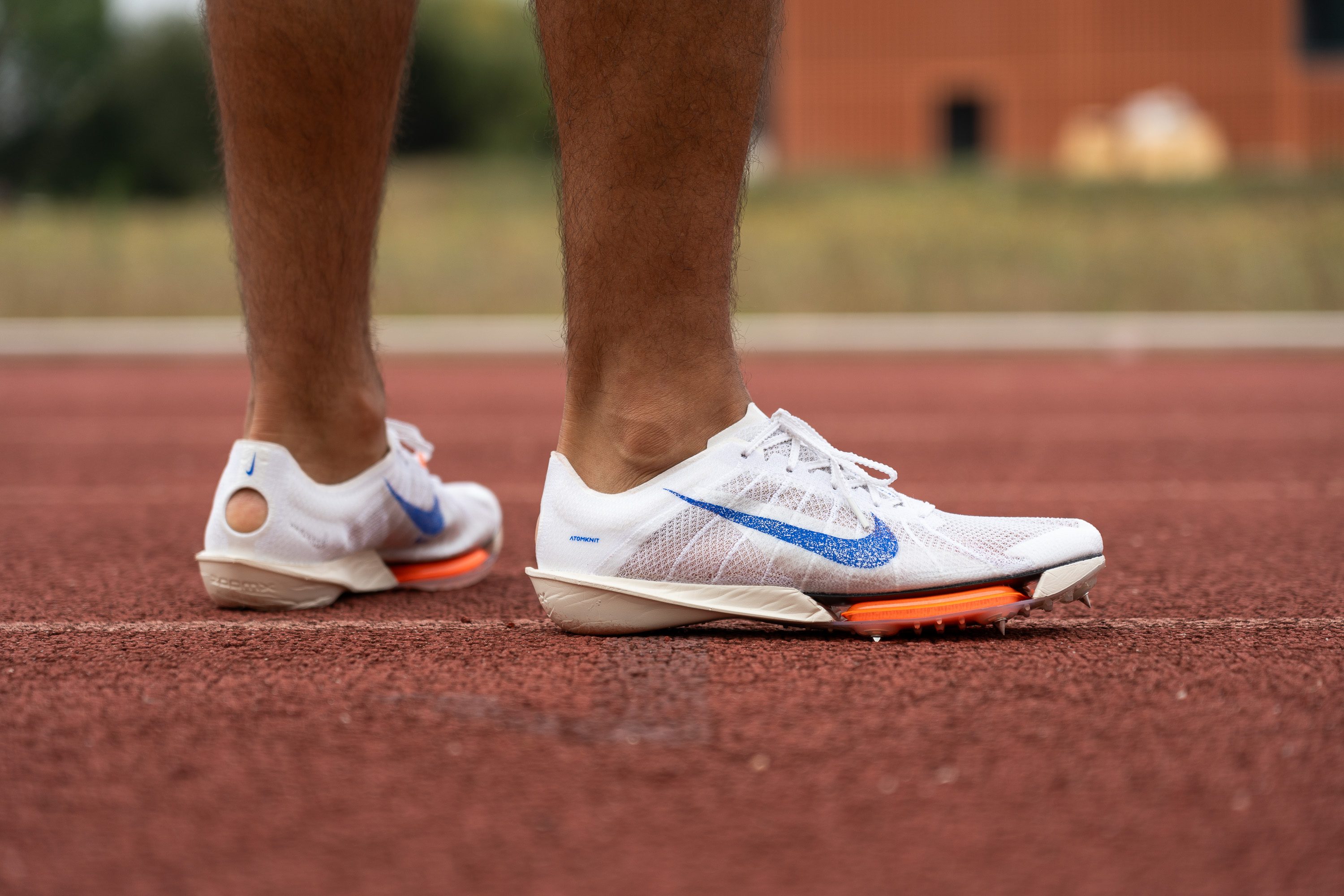
Who should NOT buy
We think those wanting a more classic spike that's less extreme and stiff might prefer the Nike Dragonfly 2. It still features the advanced ZoomX foam and excel in long distance events but lacks the Air Zoom units, offering a more accessible, easier ride.
We also believe the Victory 2 isn’t the best choice for those seeking an affordable option, as its high price can be a deal-breaker. Instead, we recommend the Nike Zoom Rival D 10, which is more affordable and versatile, making it a solid alternative for budget-conscious track warriors.
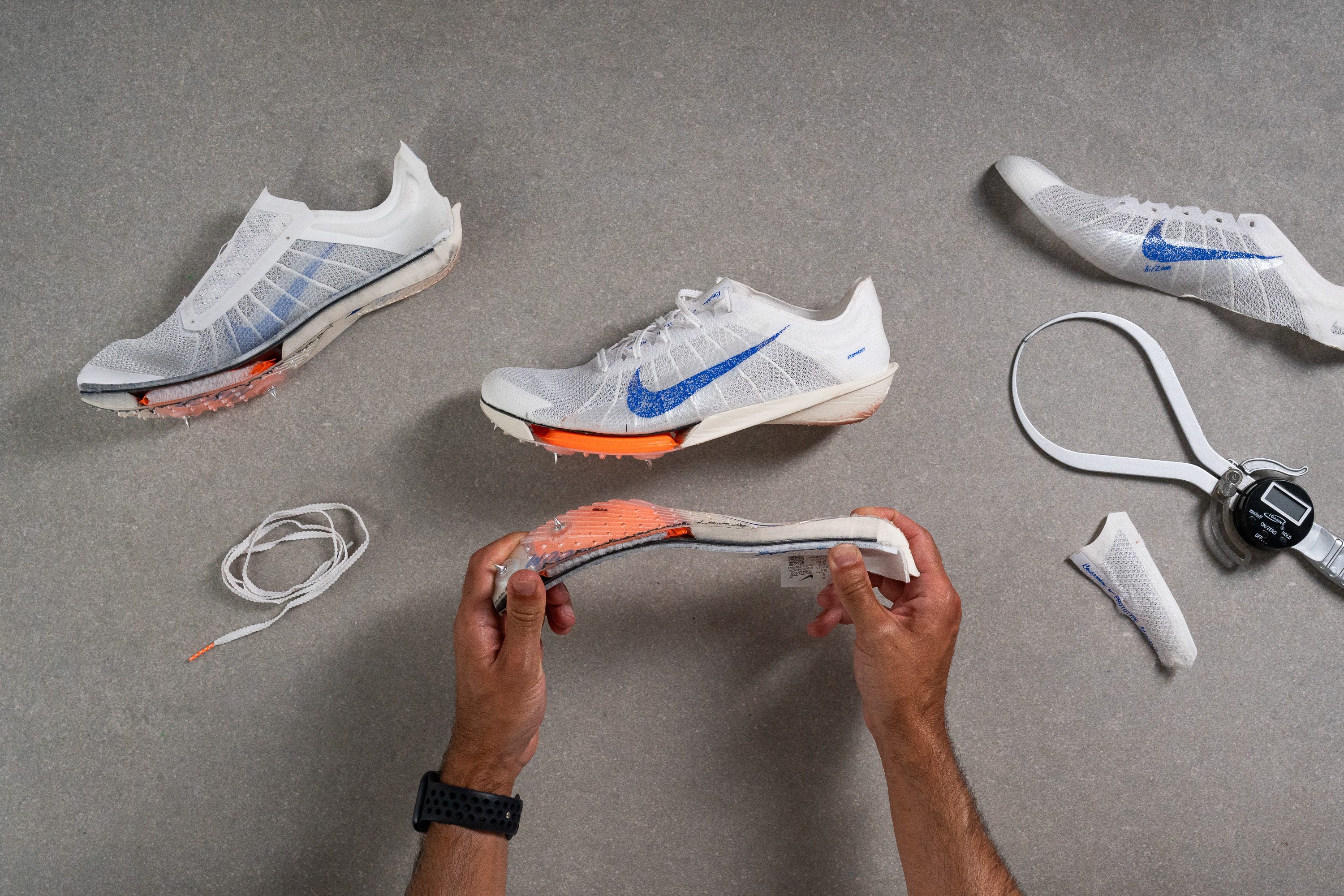
Cushioning
Heel stack
The heel of the Victory 2 is cushioned right up to the World Athletics limits, which will require running spikes to have less than 20 mm of height after the Paris 2024 Olympics. The Victory 2 measures at 19.9 mm, barely under this cap.
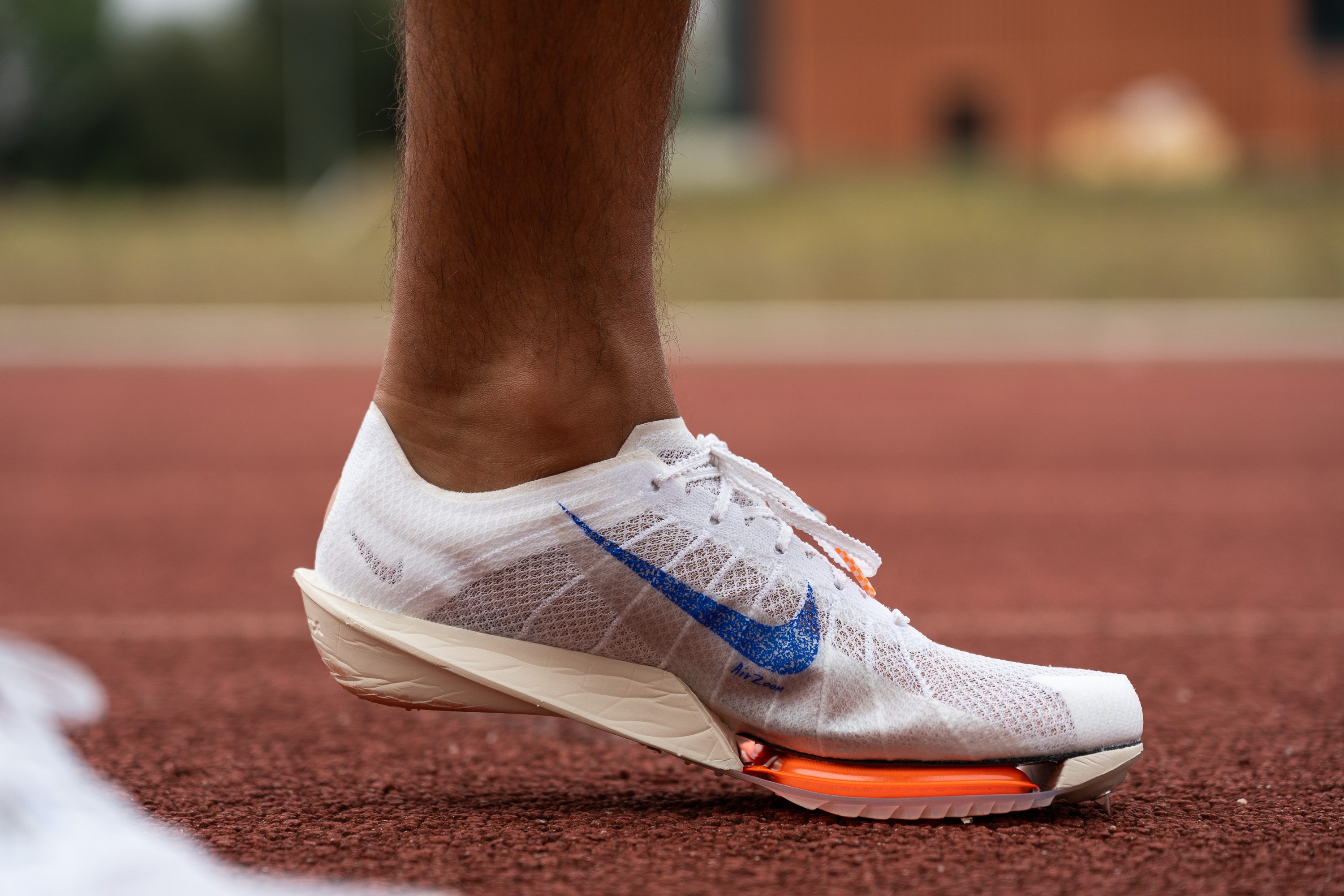
This maximum cushioning is crucial for modern spikes and represents a significant upgrade from older models. It helps maintain leg freshness, which is essential for powering through the final laps and execute a final kick.
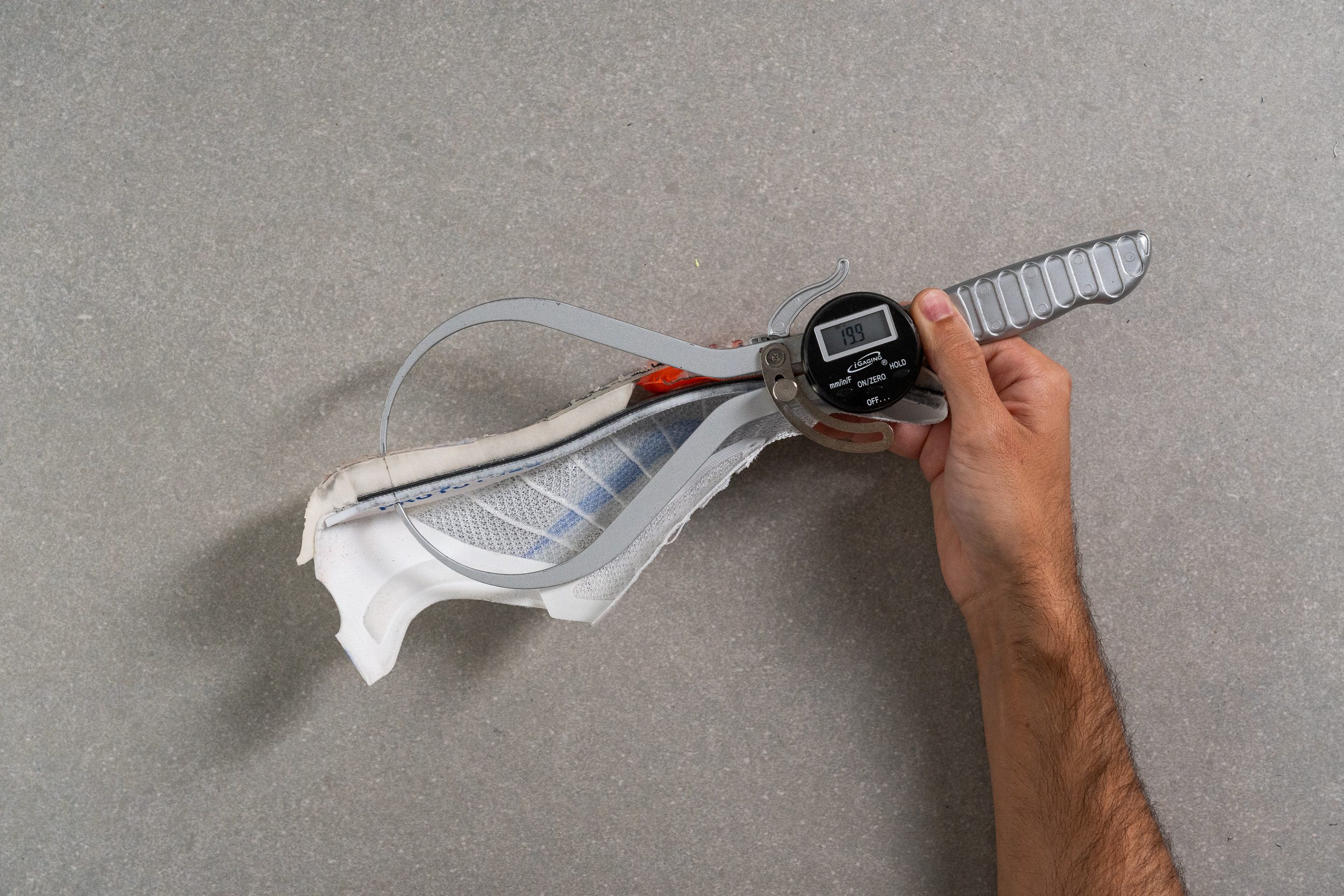
| Victory 2 | 19.9 mm |
| Average | 16.0 mm |
Forefoot stack
In the forefoot, we measured a stack height of 19.3 mm, again near the World Athletics' current limit. However, it's crucial to highlight that this area contains no foam—the majority of this height comes from the bouncy Air Zoom unit alone!
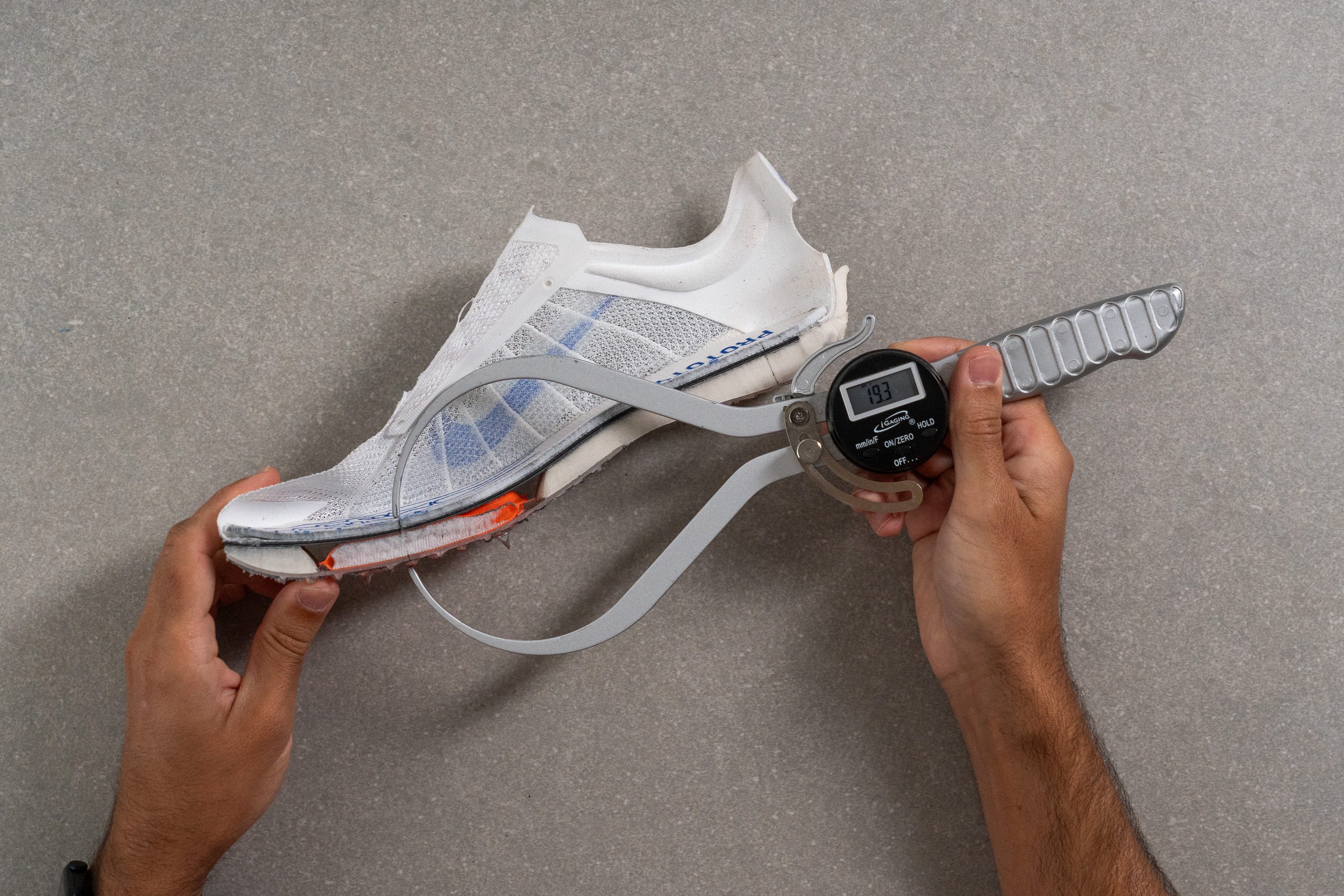
| Victory 2 | 19.3 mm |
| Average | 15.3 mm |
Drop
The drop measures just as we expectated at 0.6 mm, and it doesn't negatively affect the shoe's performance, but the opposite.
That's because for maximum running economy, it's crucial to land on the Air Pods when using this shoe—heel landings are not advisable and...can be detrimental to the tightness of your calves.
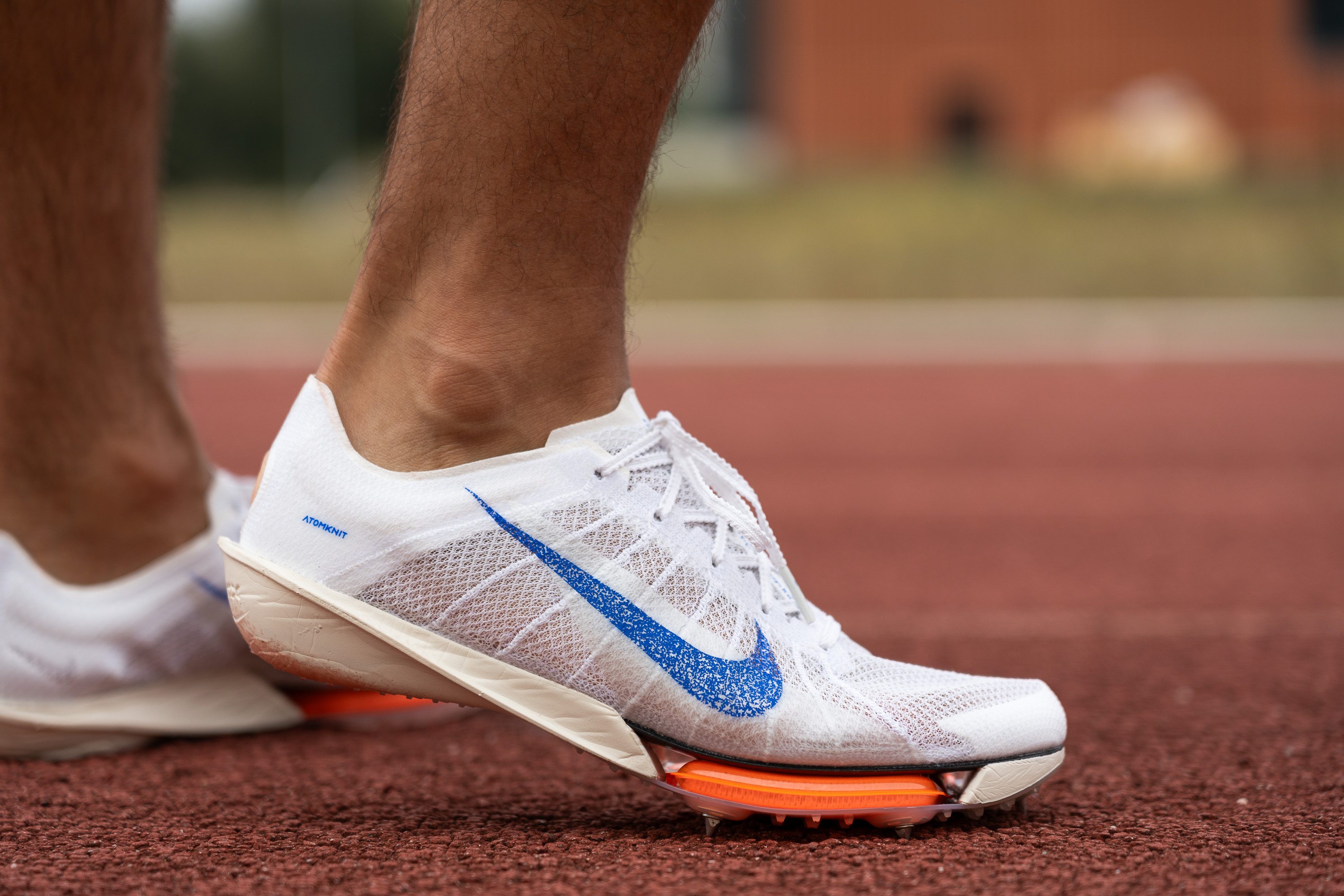
| Victory 2 | 0.6 mm |
| Average | 0.7 mm |
Midsole softness
The Nike Victory 2 encapsulates the best technology Nike currently offers, with the midsole featuring the same Pebax-based ZoomX foam from the Vaporfly 3. This foam has consistently ranked among the most responsive and bouncy materials since 2017.
When we tested the softness of this ZoomX foam with our durometer, it registered at just 12.5 HA—surprisingly softer than expected and nearly half as firm as what we measured in the Dragonfly 2.
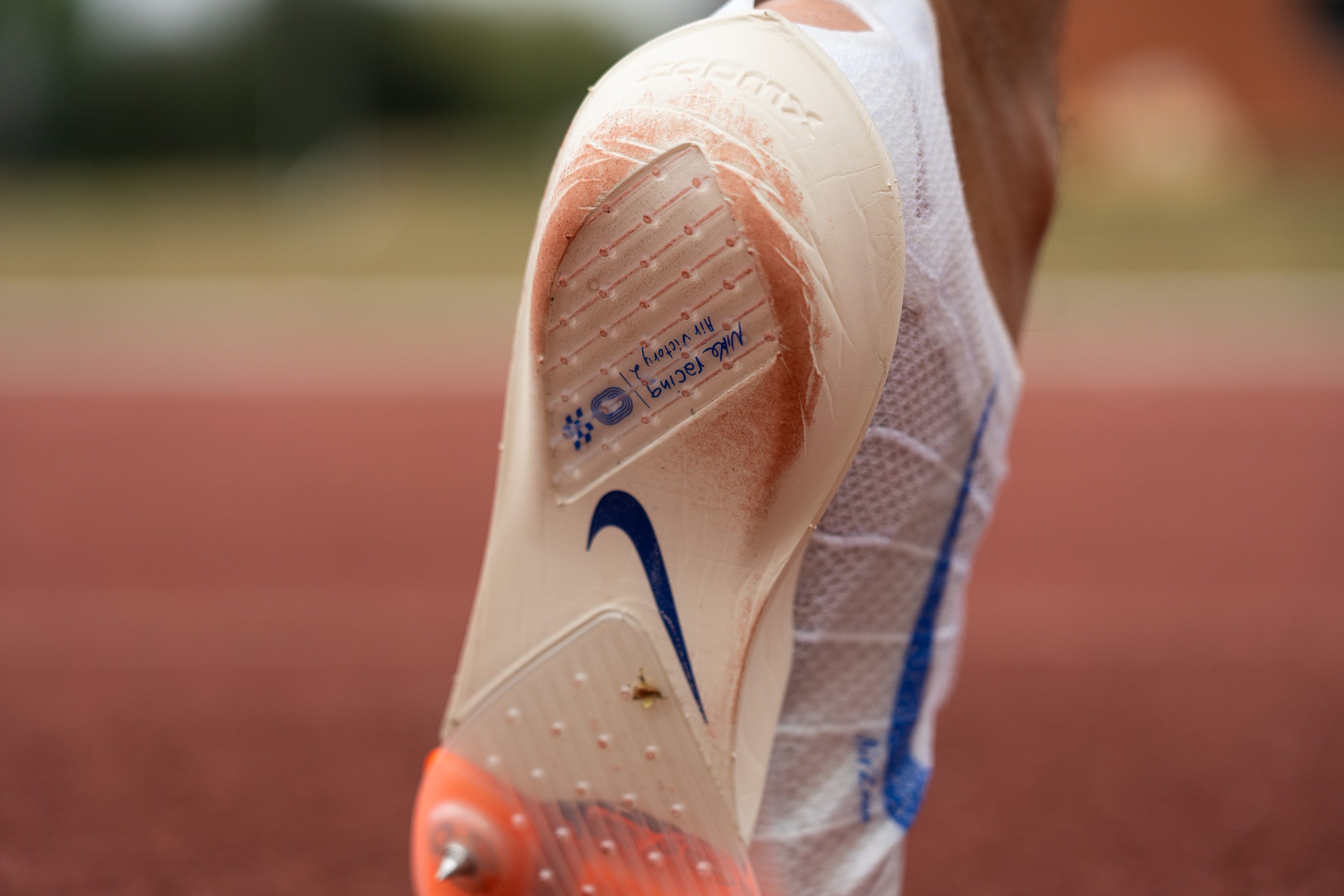
This observation supports our previous findings detailed in our guide about foams—that despite sharing the same name and base material, ZoomX formulations can vary significantly between models.
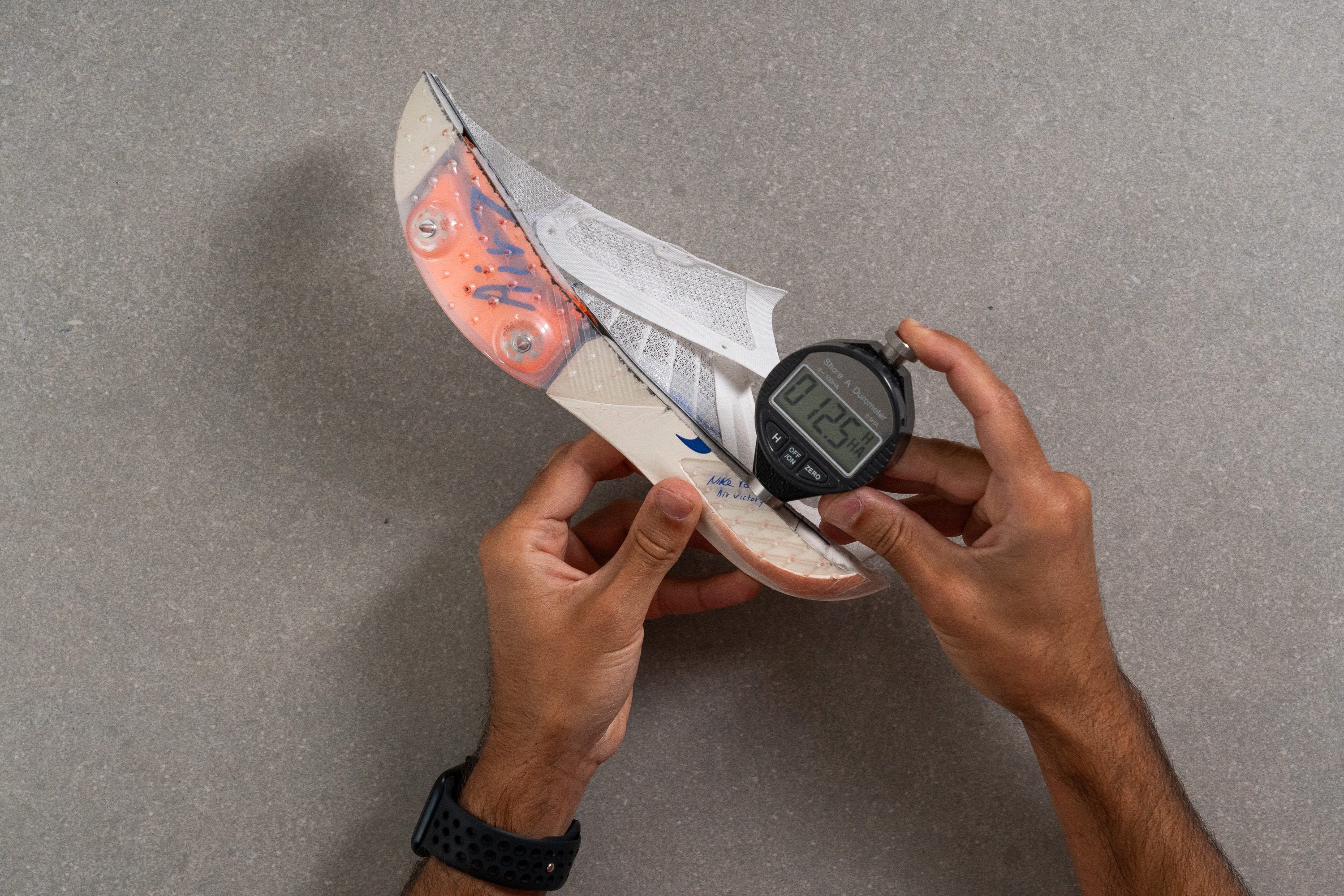
| Victory 2 | 12.5 HA |
| Average | 23.8 HA |
Plate
Today, it’s hard to find a top-performing spike without a carbon plate. Nike incorporates a full-length, spoon-shaped Flyplate, inspired by the Vaporfly series, to deliver a stiff, propulsive ride.
This design is crucial for compressing both Air Zoom units to maximise energy return from the force exerted onto the ground.
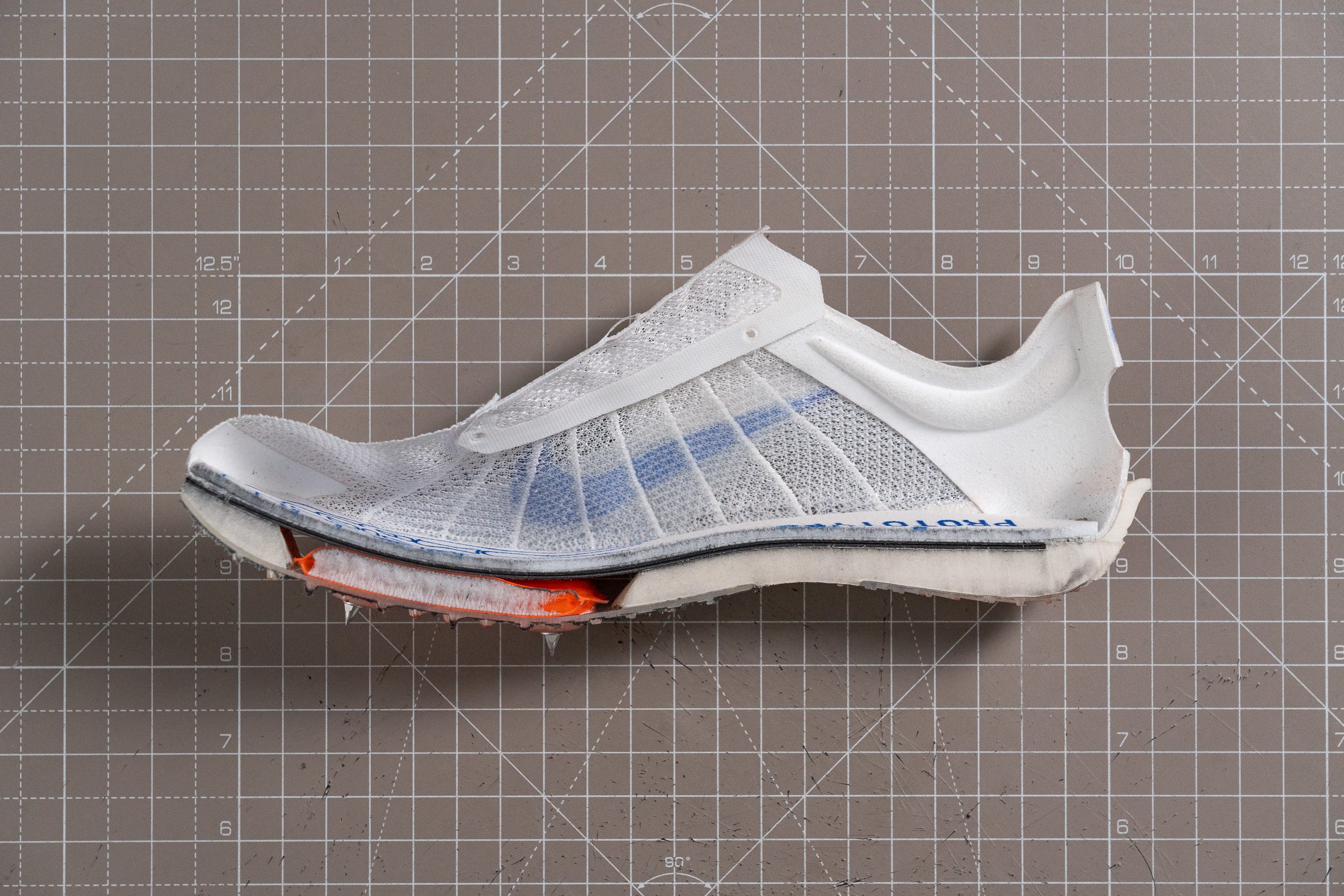
Air Zoom
Speaking of key features, the main star of the show is the dual Air Zoom unit in the forefoot of the Victory 2, which offers a signature bungee-like feel unmatched by most other superspikes on the market.
The bouncy sensation from these Air Zoom units is unique. Additionally, a major advantage is their durability—unlike foam, the performance of these units remains nearly unchanged, showing minimal fatigue or degradation even after hundreds of miles.
Removable pins
Each pin in the new setup is detachable using the included tool from Nike, allowing you to swap them out as desired or necessary.
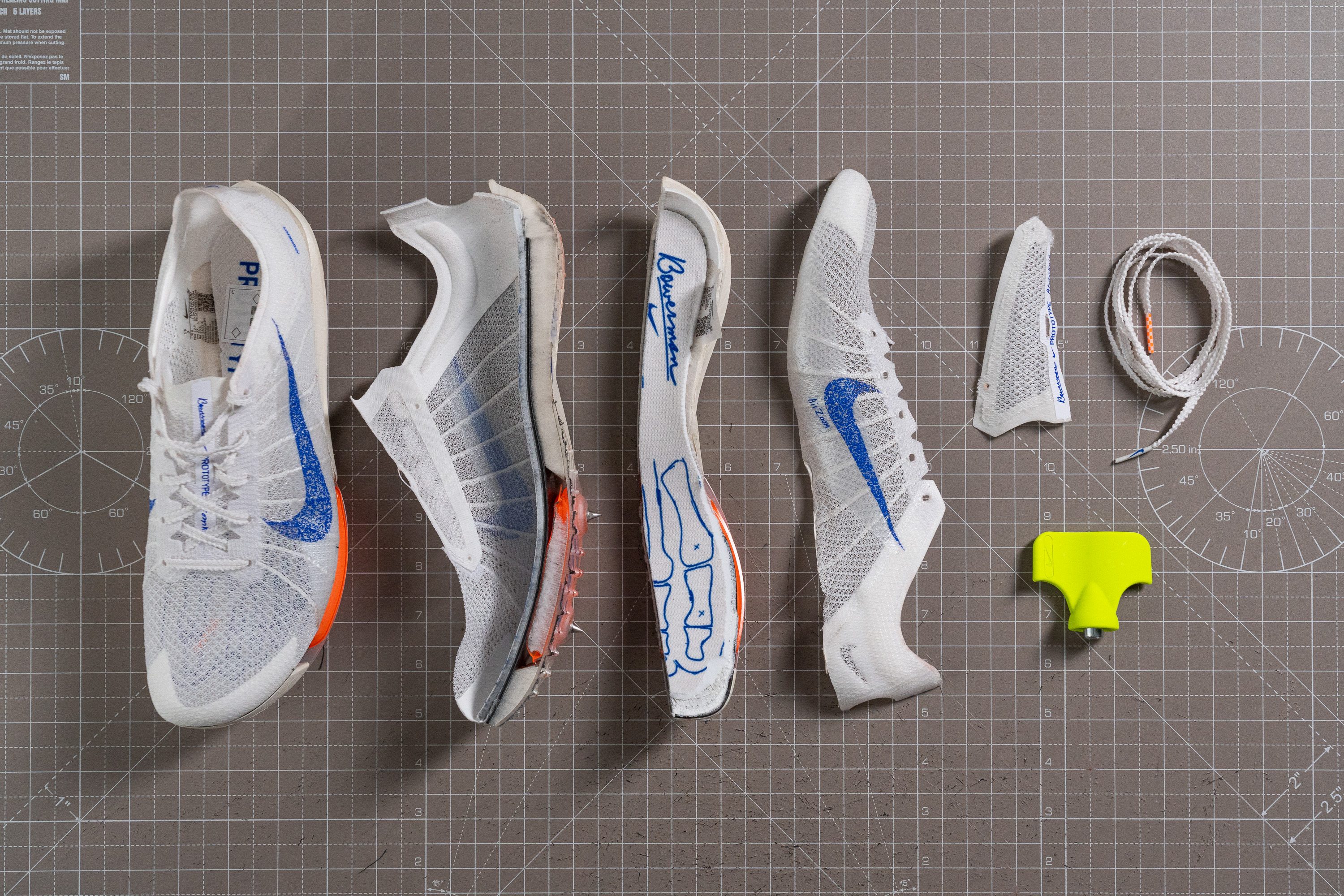
Size and fit
Size
Nike Victory 2 fits true to size (82 votes).
Internal length
| Victory 2 | 258.3 mm |
| Average | 262.3 mm |
Width / Fit
The Victory 2 offers a snug, race-car like fit which is exactly what you'd expect from a shoe designed for breaking records.
Measuring the 1:1 replica of the shoe's interiors, our calliper recorded a pretty narrow reading of 86.2 mm in its widest area. That's the one-to-one fit we're talking about.
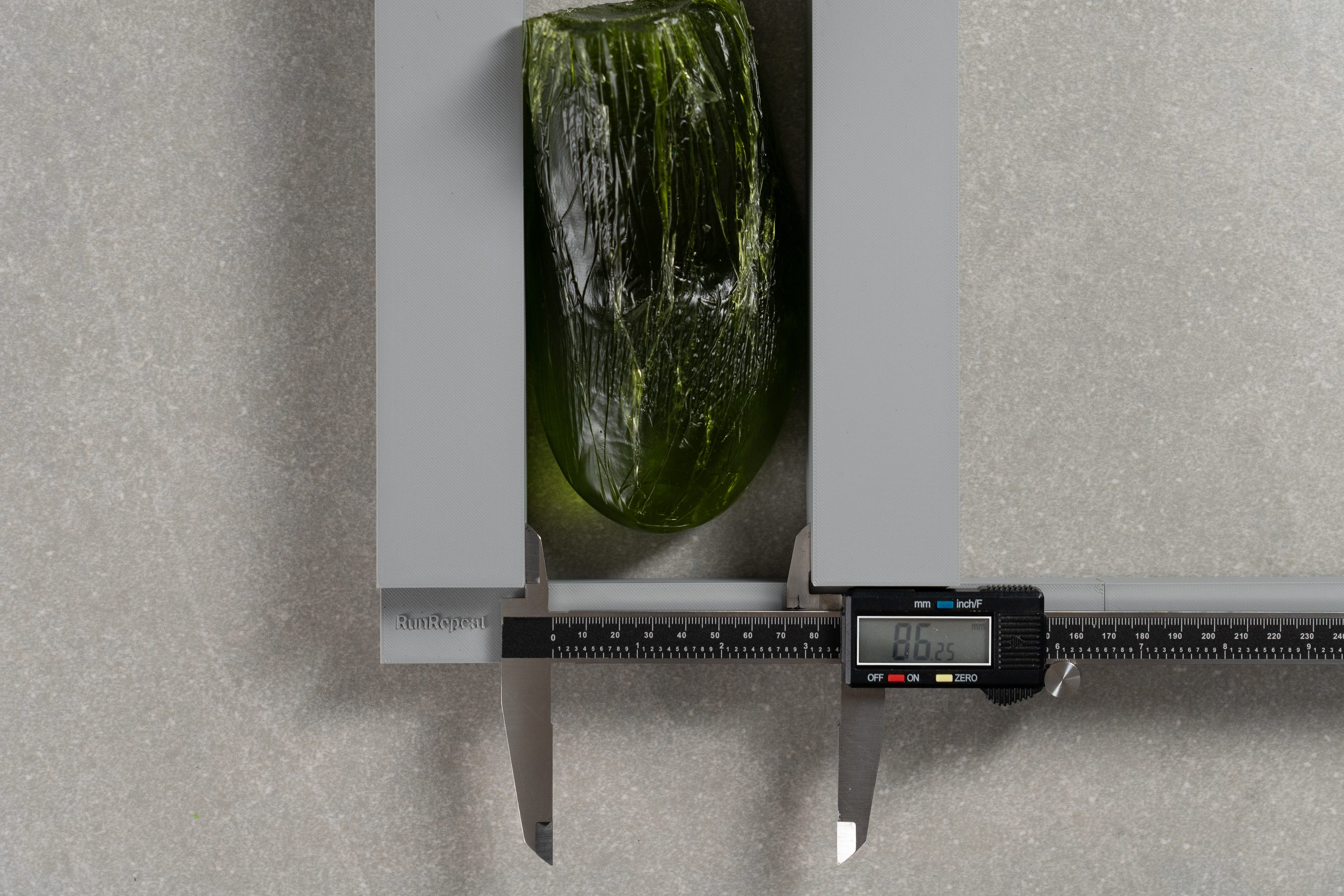
| Victory 2 | 86.2 mm |
| Average | 88.4 mm |
Toebox width
However, the shoe's toebox shape widens and becomes notably more accommodating towards the toes. It even resembles the anatomic style of Altra shoes. This is reflected in the above-average caliper reading of 71.0 mm in the big toe area.
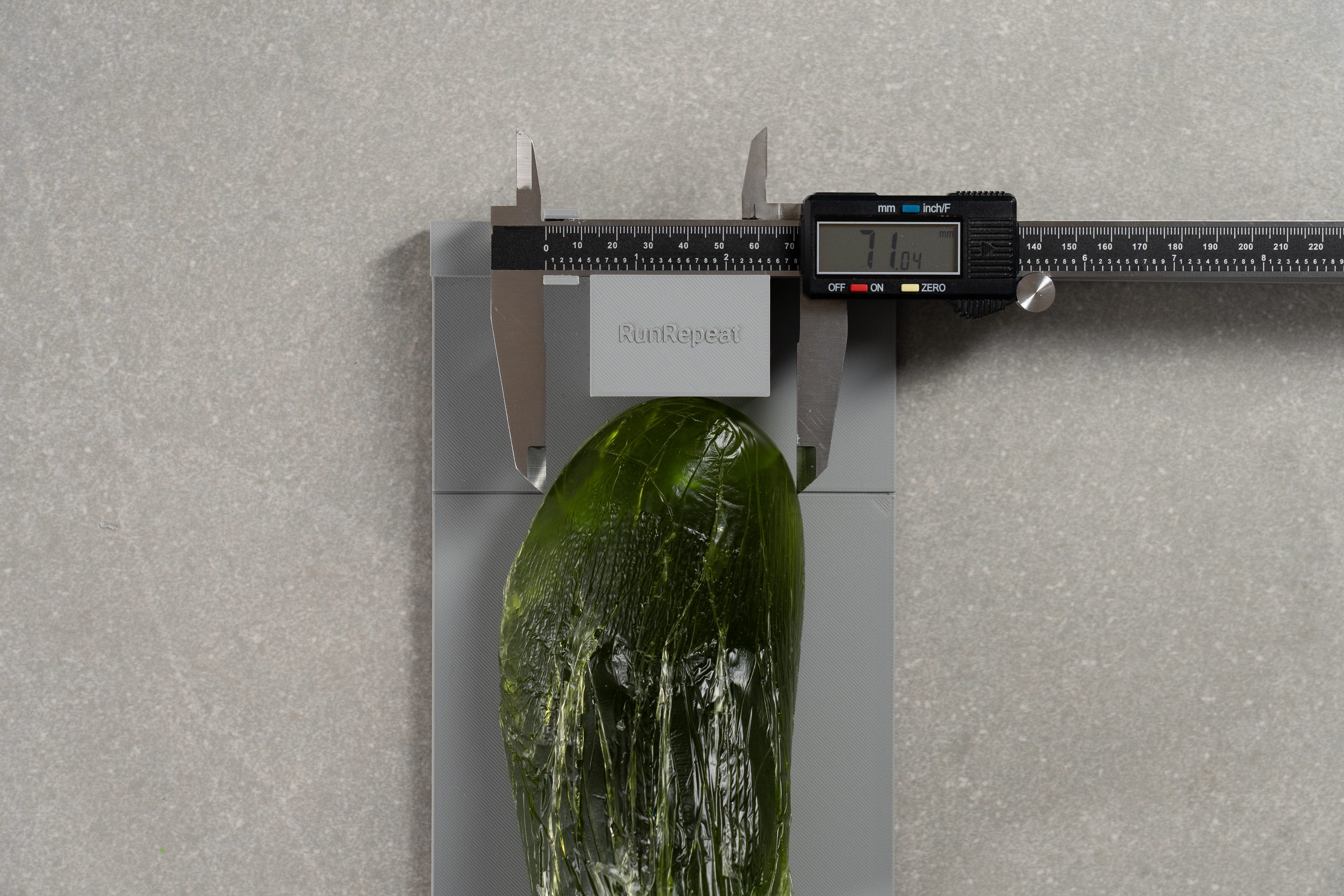
| Victory 2 | 71.0 mm |
| Average | 69.0 mm |
Toebox height
The Nike Victory 2 also turned out to be one of the most accommodating running spikes in terms of vertical space!
We were able to wiggle our toes as freely as we wanted thanks to the generous real estate of 32.0 mm.
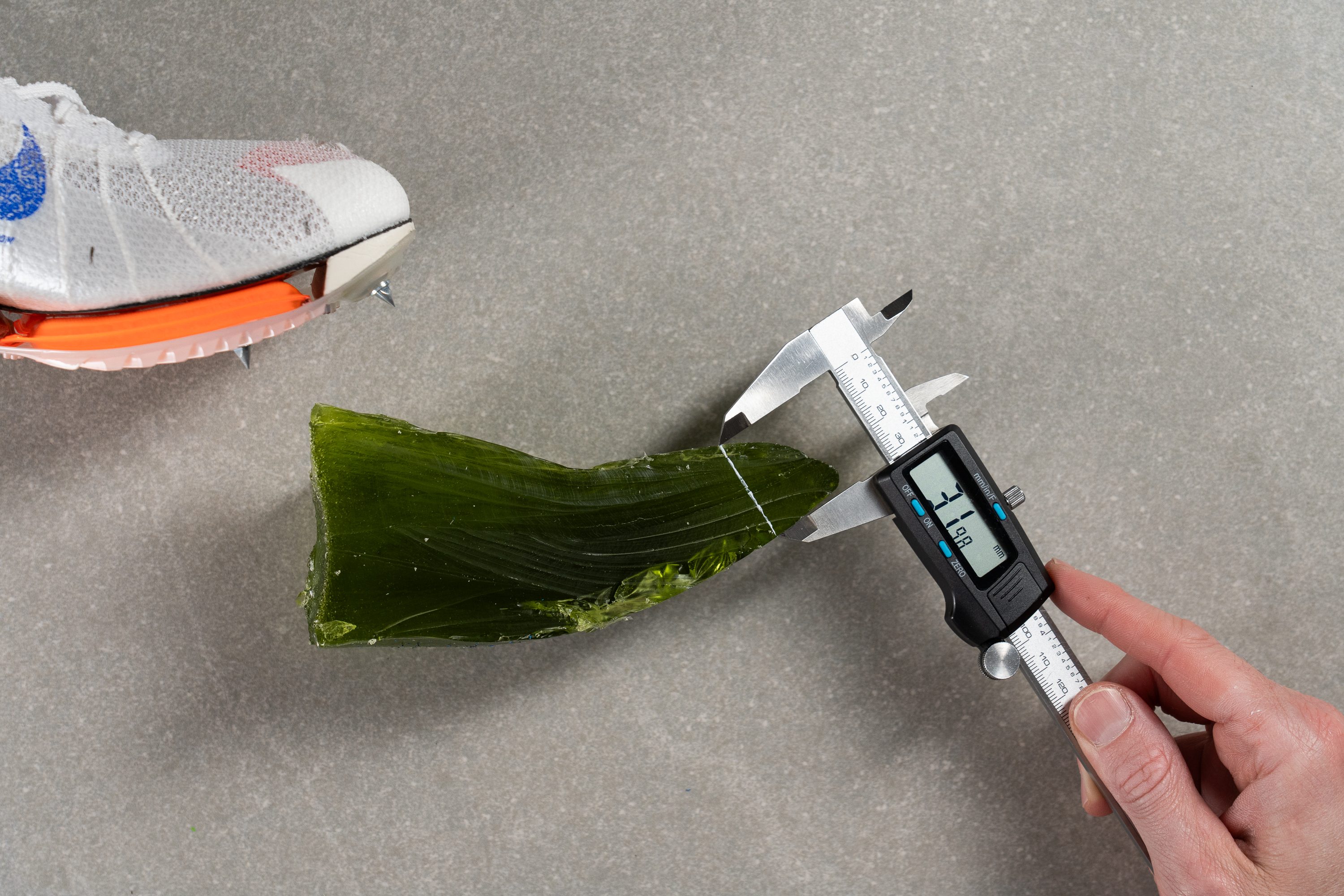
| Victory 2 | 32.0 mm |
| Average | 25.8 mm |
Flexibility / Stiffness
Equipped with a carbon-fibre plate, we anticipated high stiffness, but we needed to quantify this in our lab as we do with every test. After securing the Victory 2 to the machine and flexing it to 30 degrees, we measured a force of 14.3N, confirming our expectations!
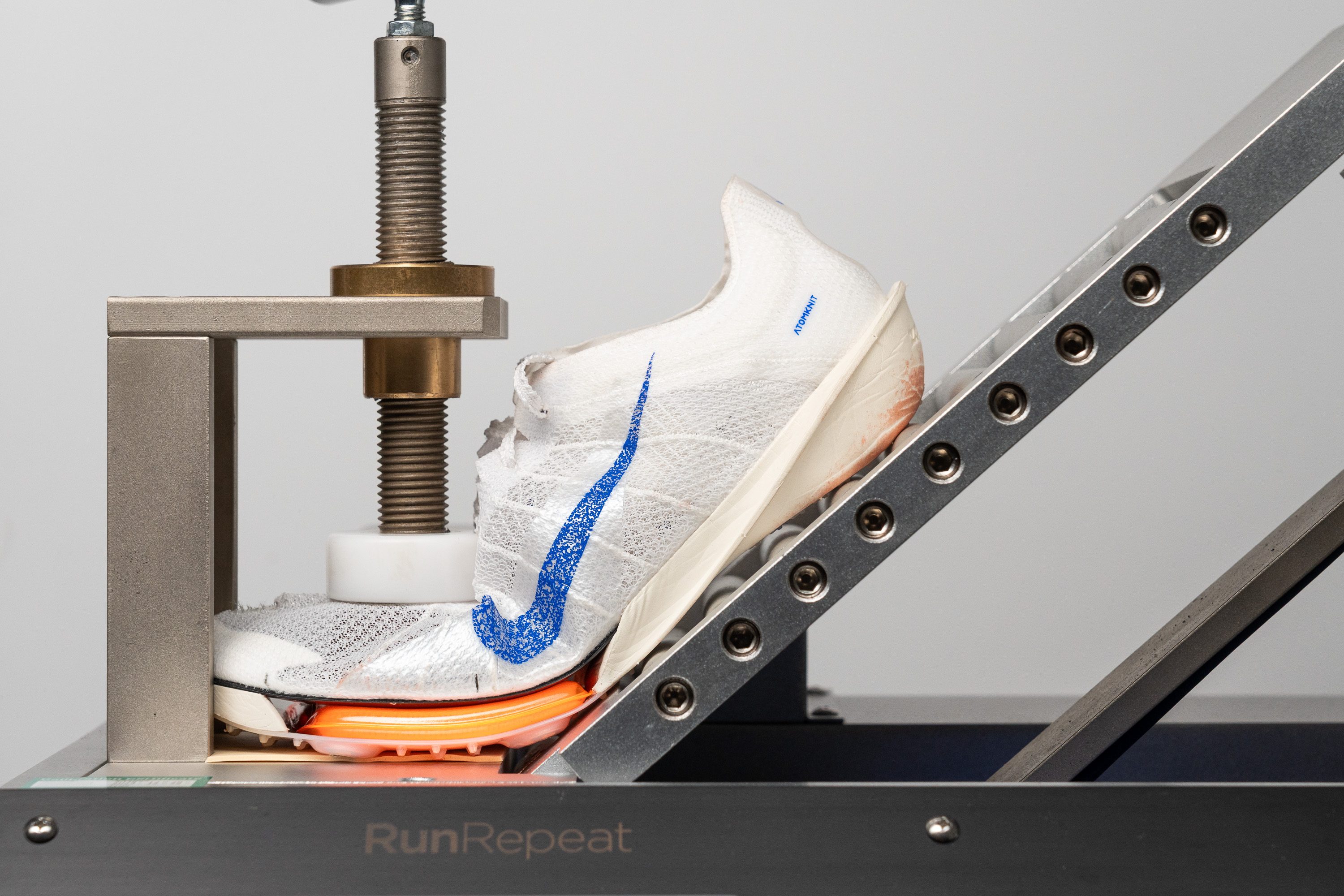
| Victory 2 | 14.3N |
| Average | 13.2N |
Weight
During our hands-on testing of the Victory 2 on the track, we were immediately struck by its feather-light feel—a sensation akin to running barefoot! This impression was confirmed by our scale, which registered a mere 4.8 oz or 135 g.
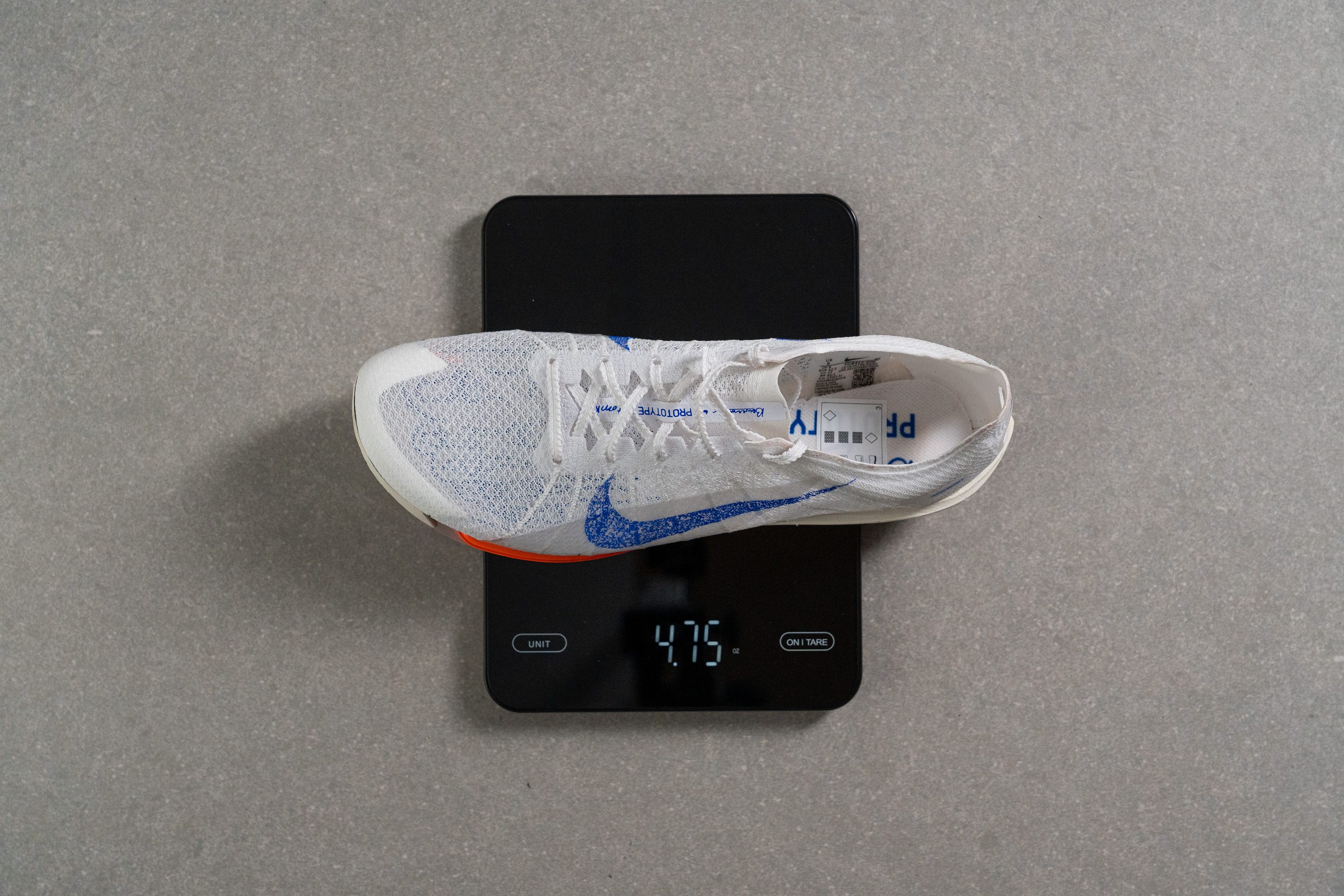
| Victory 2 | 4.8 oz (135g) |
| Average | 5.6 oz (158g) |
Breathability
Fans of the Alphafly 3 will be thrilled with the Nike Victory 2, which features the same Atomknit technology that wowed us in that marathon racing shoe. It offers an exceptional fit that comfortably accommodates going sockless and boasts excellent ventilation.
We confirmed its breathability using our smoke-pumping machine—the air flowed through continuously and without interruption. This means no matter how hot your favourite summer track meet gets, the Victory 2 will keep you cool.
Our examination with the light showed how Nike strategically reinforced the shoe with thicker stripes on the sides for added stability while maintaining superb ventilation throughout. This design is particularly beneficial for those who prefer racing longer distances.
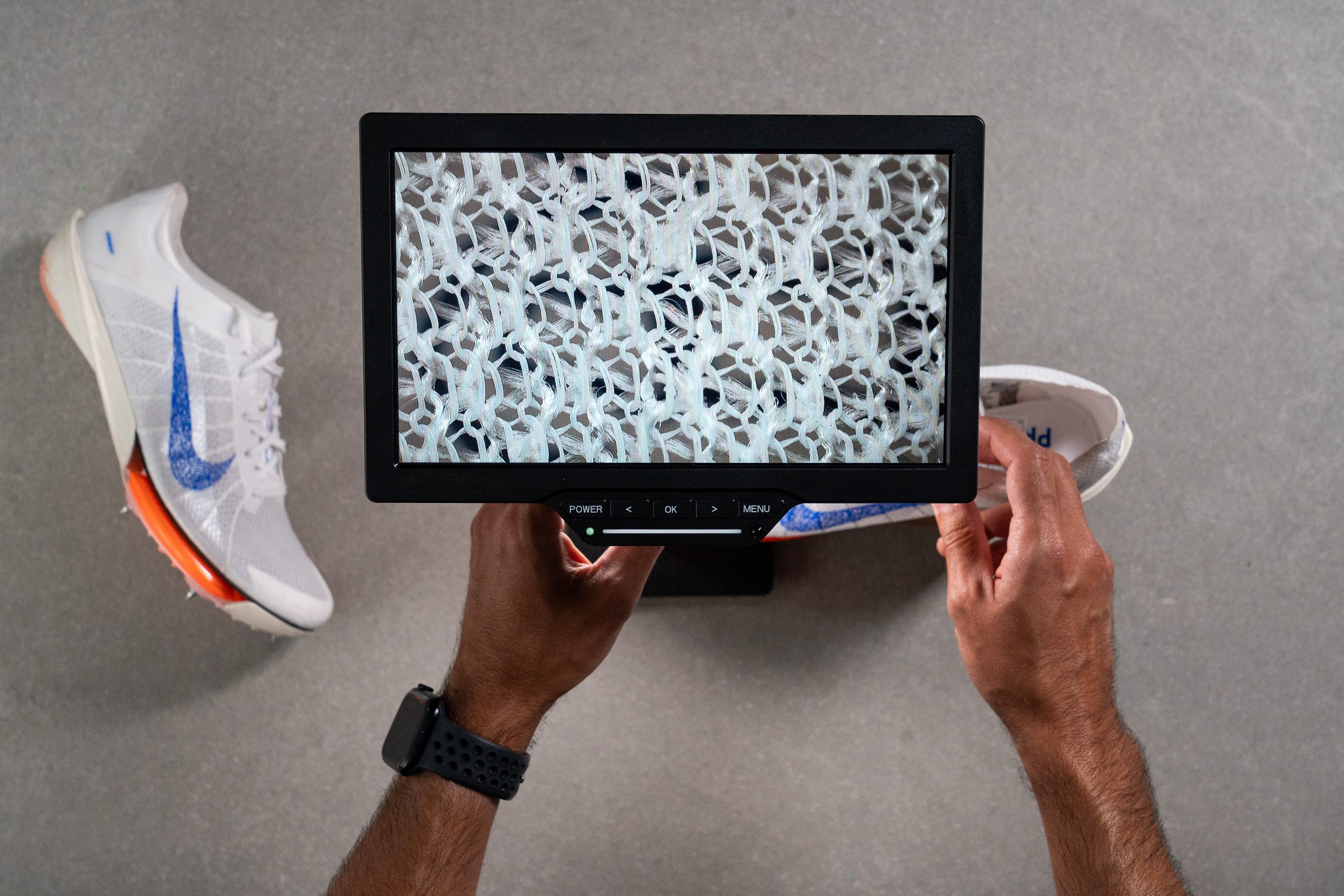
Using a microscope, we got an up-close look at the Atomknit upper, which revealed countless tiny holes that allow for maximum air escape, enhancing the shoe's breathability.
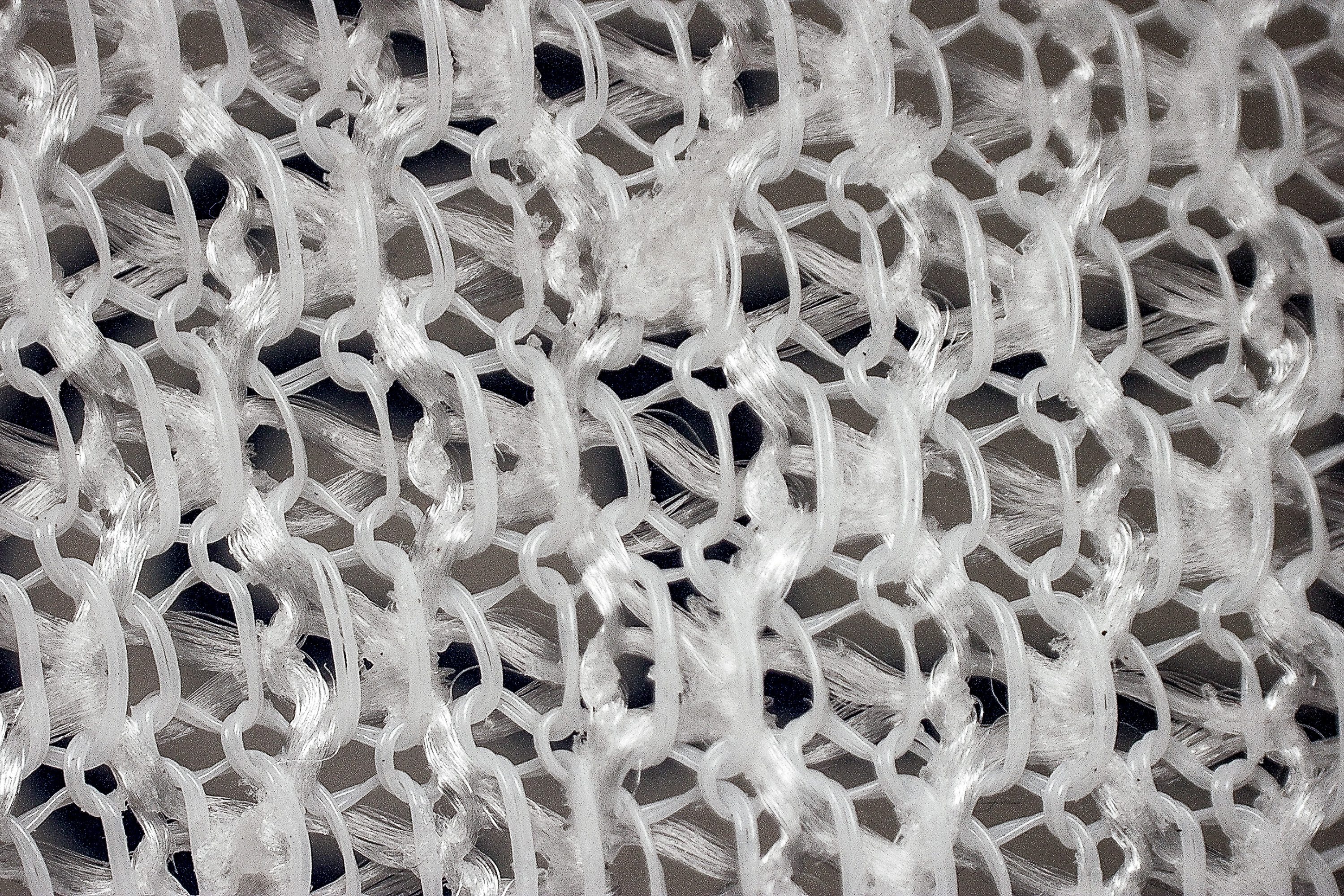
But the thoughtful details don't end there.
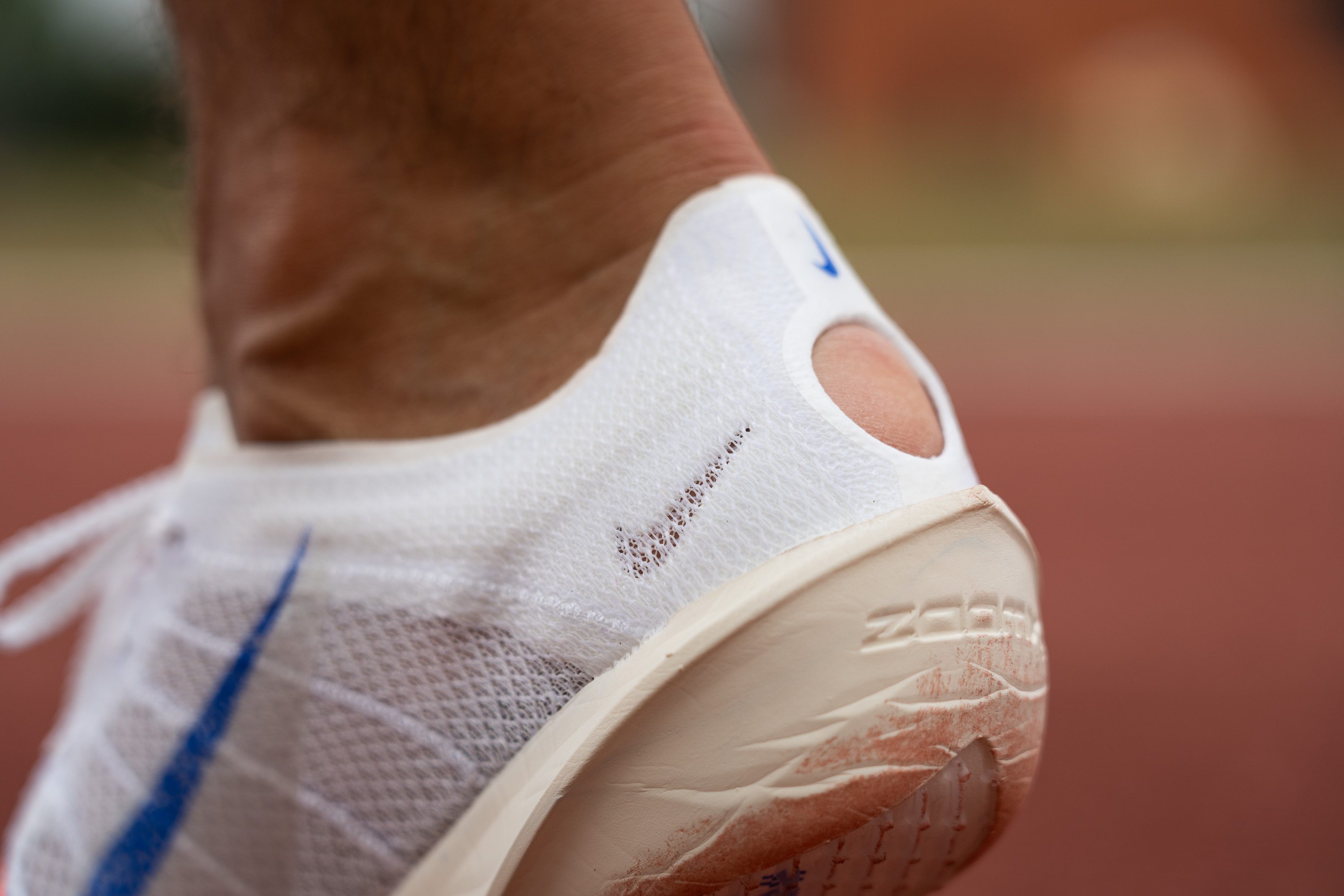
In addition to the classic heel hole from some Nike spikes, we appreciated Nike's innovative use of its logo in the heel to improve ventilation—a premium detail that may be subtle but significantly enhances comfort and design.
What we didn't find, of course, was padding. But who wants that in a racer? It adds weight!
| Victory 2 | 5 |
| Average | 4.1 |
Stability
Torsional rigidity
Scoring a 4 out of 5 for torsional rigidity with a carbon plate may seem surprising, as the norm is typically a 5/5. However, the Victory 2 features a thinner plate, and the restricted amount of midsole material due to the 20-mm World Athletics limit allows for slightly less torsional rigidity.
| Victory 2 | 4 |
| Average | 3.3 |
Heel counter stiffness
The heel counter is basically nonexistent, typical of a thoroughbred racing shoe. As we folded it without any resistance, we awarded it a 1/5 on our scale.
| Victory 2 | 1 |
| Average | 1.7 |
Midsole width - forefoot
In our evaluation of the midsole dimensions, we noted that Nike opted for an average width at 93.1 mm.
This design ensures that the midsole supports optimal functionality of the Air Zoom technology, enhancing performance without introducing potential issues from an excessive forefoot width.
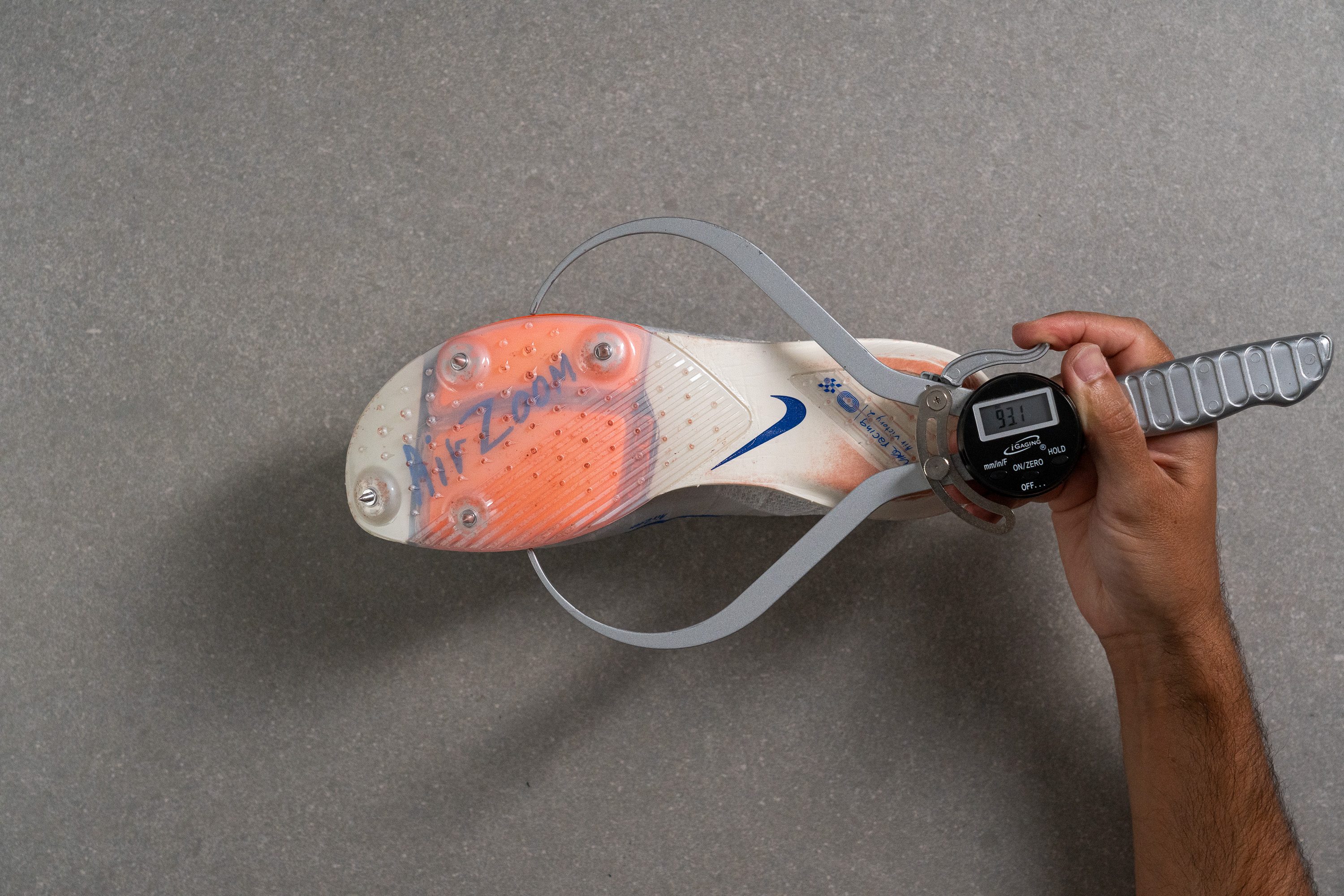
| Victory 2 | 93.1 mm |
| Average | 95.1 mm |
Midsole width - heel
We once again used our digital callipers and measured a heel width of 73.3 mm, which is noticeably wider compared to many spikes.
But this spike isn't for short, explosive races but rather for setting a set-and-forget pace below the next runner, and clocking dozens of laps on the track often benefits from extra stability and support.
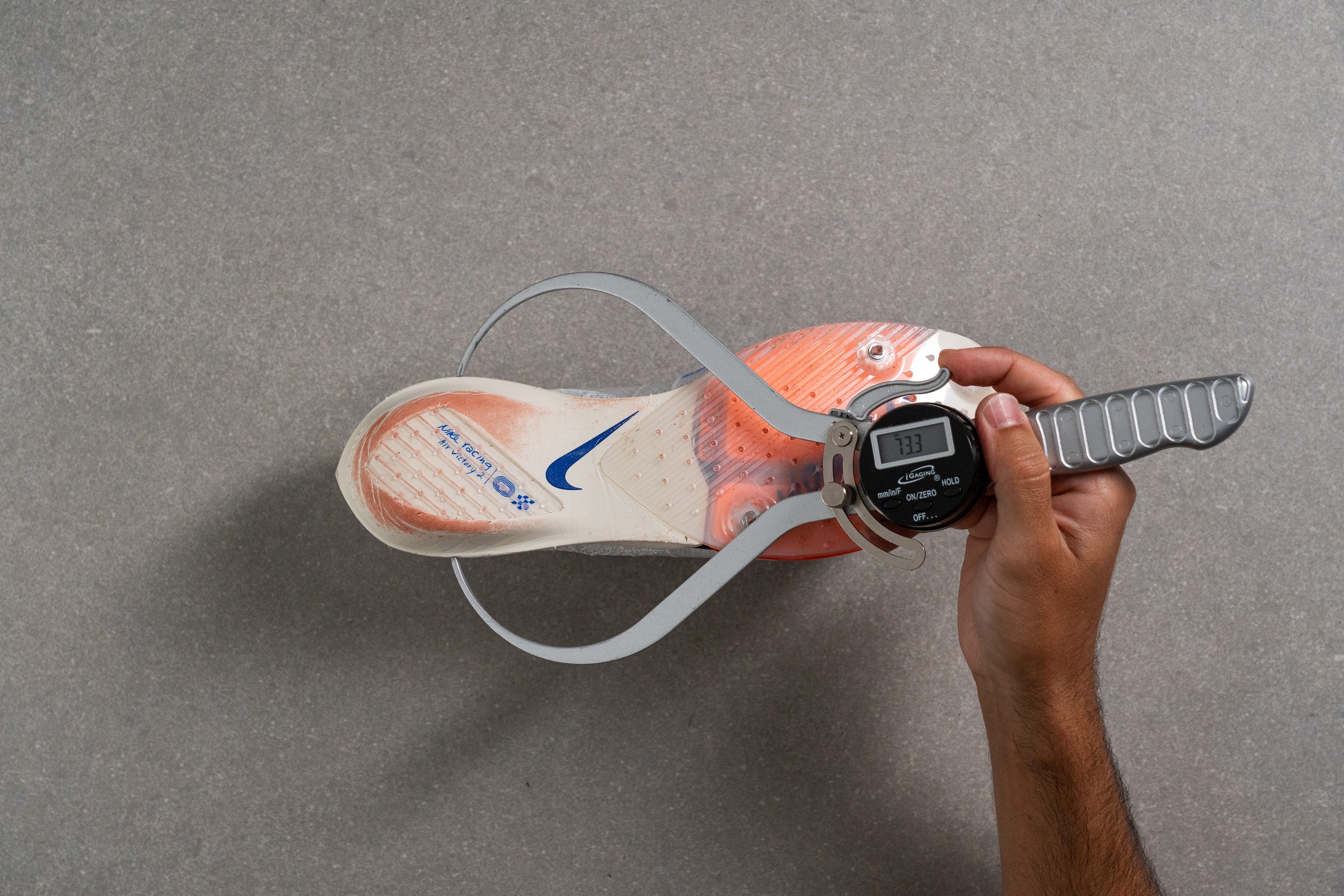
| Victory 2 | 73.3 mm |
| Average | 63.0 mm |
Durability
Toebox durability
The trade-off for such a breathable upper is noticeably compromised durability.
Sadly, when subjected to our rigorous Dremel test, the Victory 2 stood no chance, compelling us to give it the lowest durability rating possible—a mere 1 out of 5. However, Nike has really reinforced the toe cap area, so it's unlikely to tear it apart with the toes.
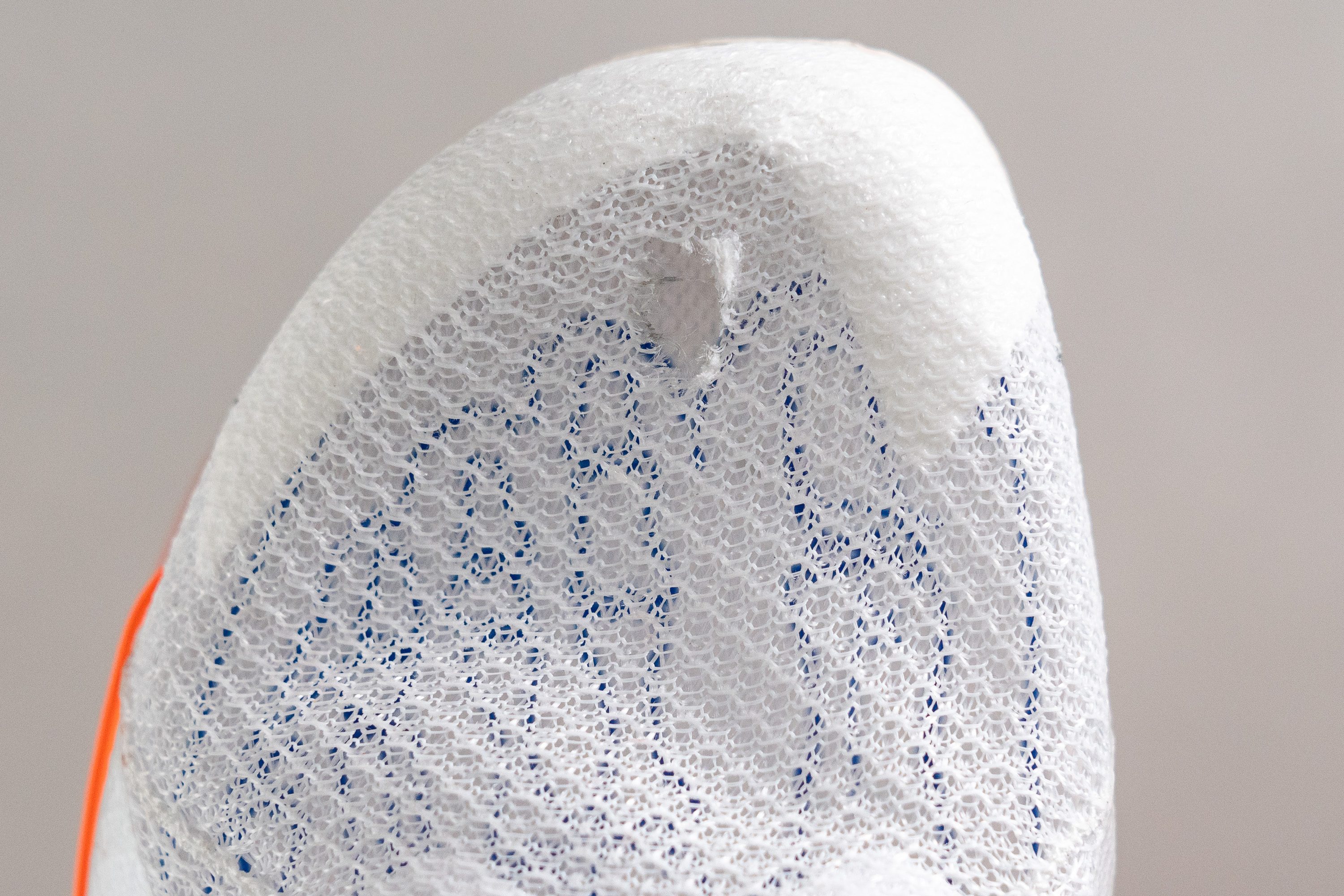
| Victory 2 | 1 |
| Average | 2.4 |
Heel padding durability
After a disappointing performance in our initial Dremel test, we changed the position of the shoe to evaluate the heel counter of the Victory 2.
In this area, we found notable improvements and awarded it a solid 3 out of 5 score. Luckily, our assessment revealed that, despite the previous setback, the heel counter at least demonstrates enhanced resilience and effectiveness.
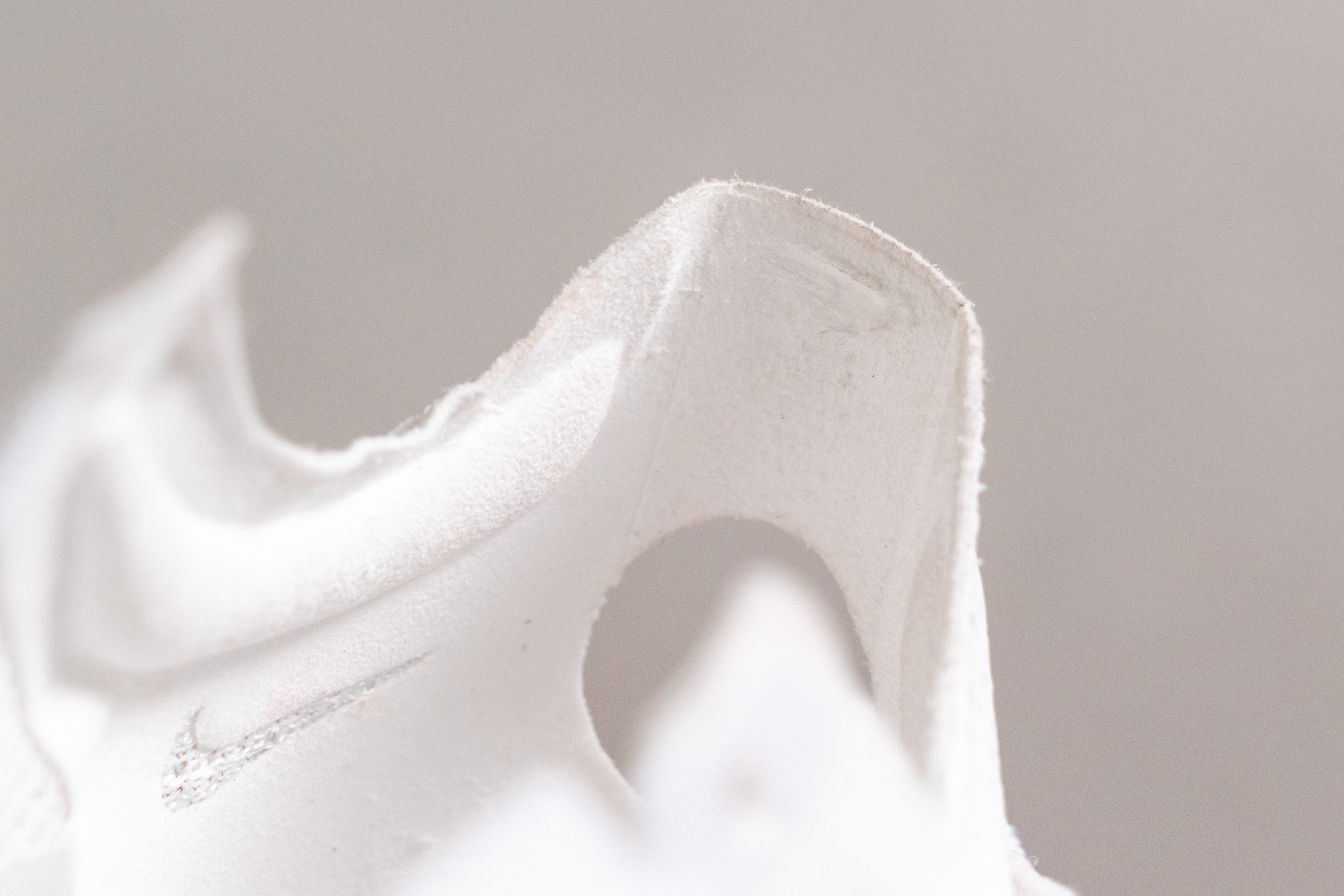
| Victory 2 | 3 |
| Average | 3.6 |
Outsole thickness
Unlike a daily running shoe, the Victory 2 doesn't have a typical rubber outsole but instead features two large translucent TPU pieces in the heel and forefoot.
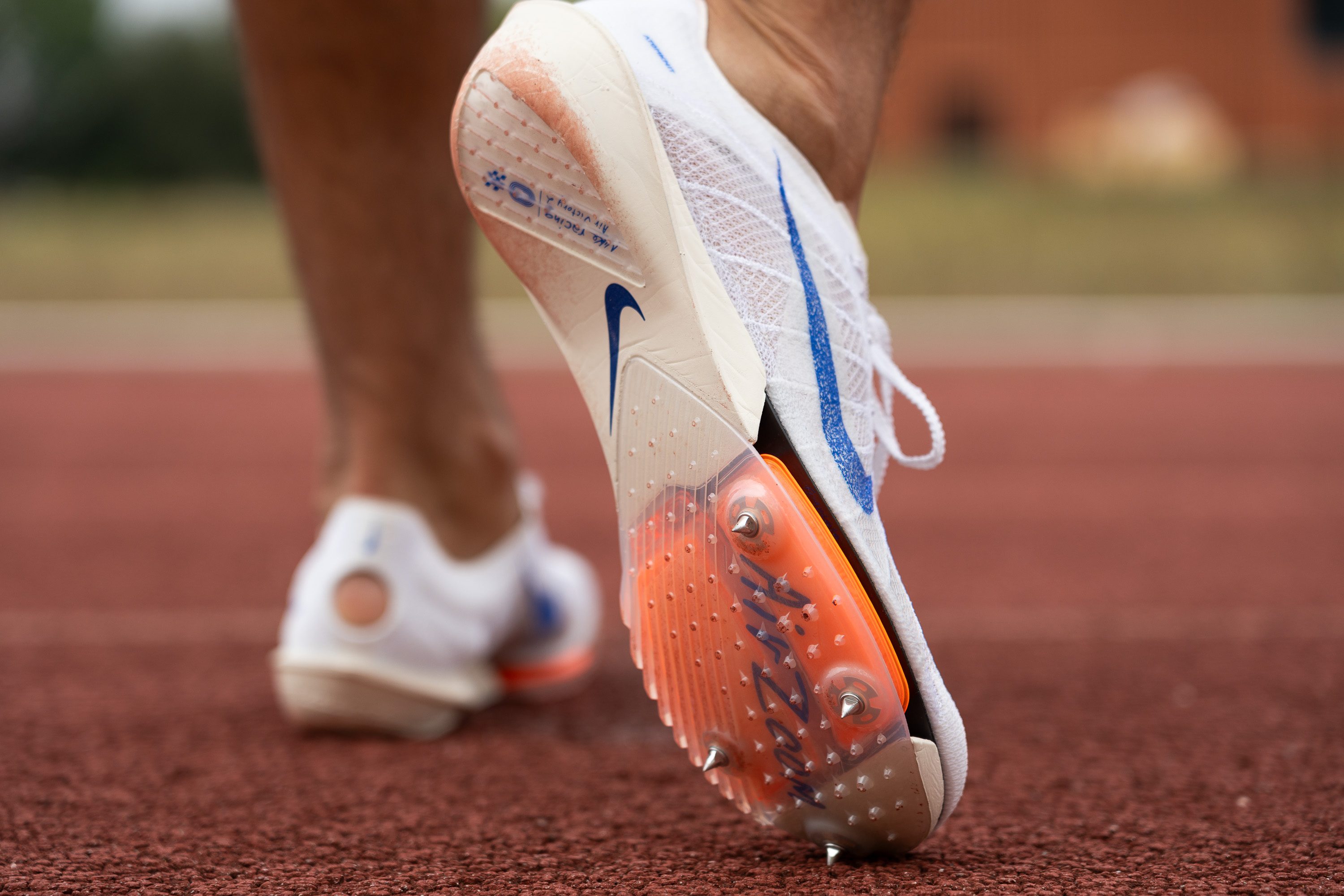
These pieces are equipped with tiny lugs that enhance traction, enabling Nike to streamline the design from a 6-pin to a more efficient and lighter 4-pin setup.
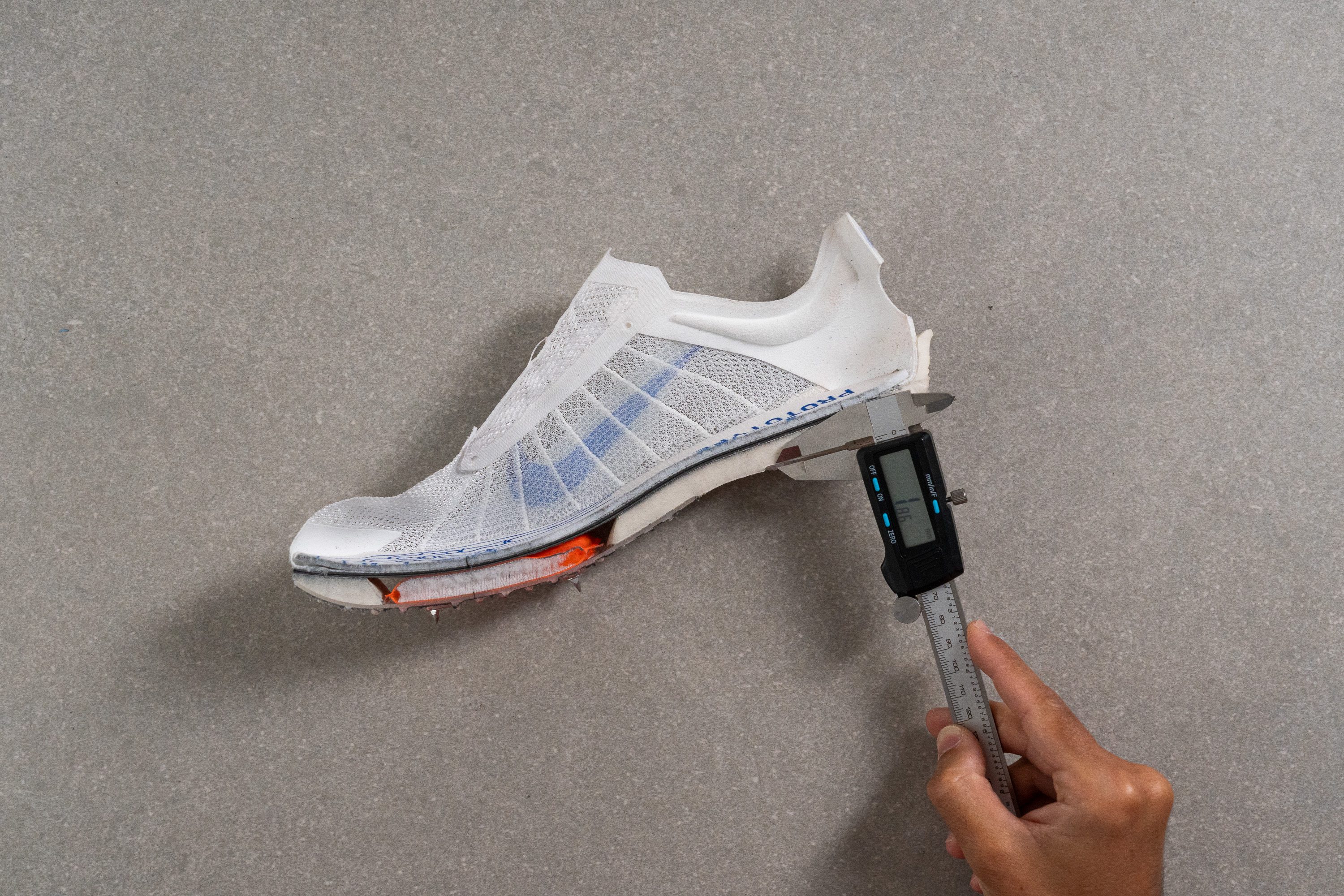
| Victory 2 | 1.9 mm |
| Average | 2.7 mm |
Misc
Insole thickness
If there's potential for performance enhancement in this shoe, replacing the 3.5-mm stock insole with a slab of ZoomX foam is definitely the way to go!
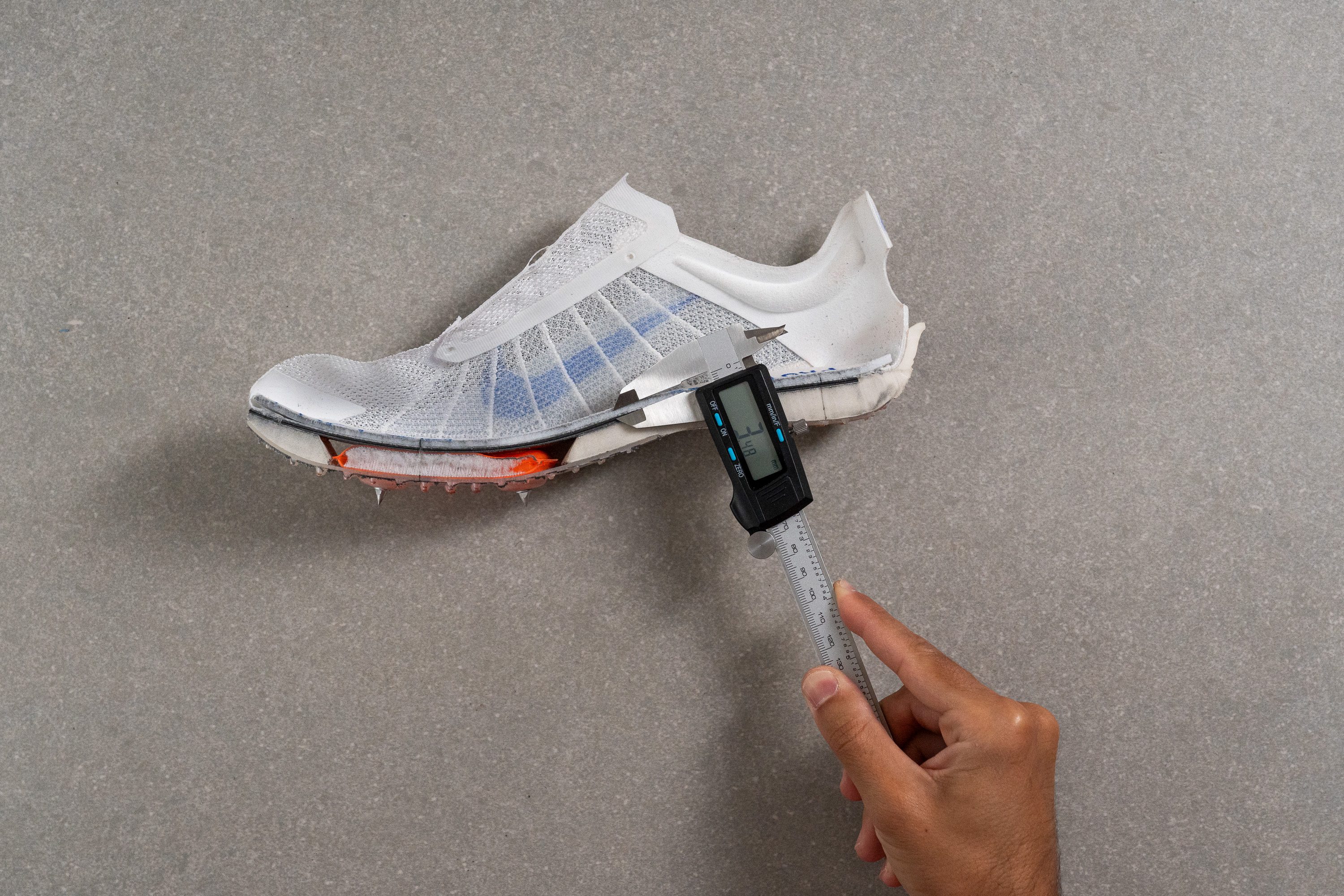
| Victory 2 | 3.5 mm |
| Average | 2.9 mm |
Tongue padding
We found that Nike crafted an ultra-thin 0.6-mm tongue—significantly thinner than the 1 to 3 mm tongues typically found in top-tier spikes and road racing shoes. This feather-light design feels almost nonexistent, though it does sacrifice some protection for your instep.
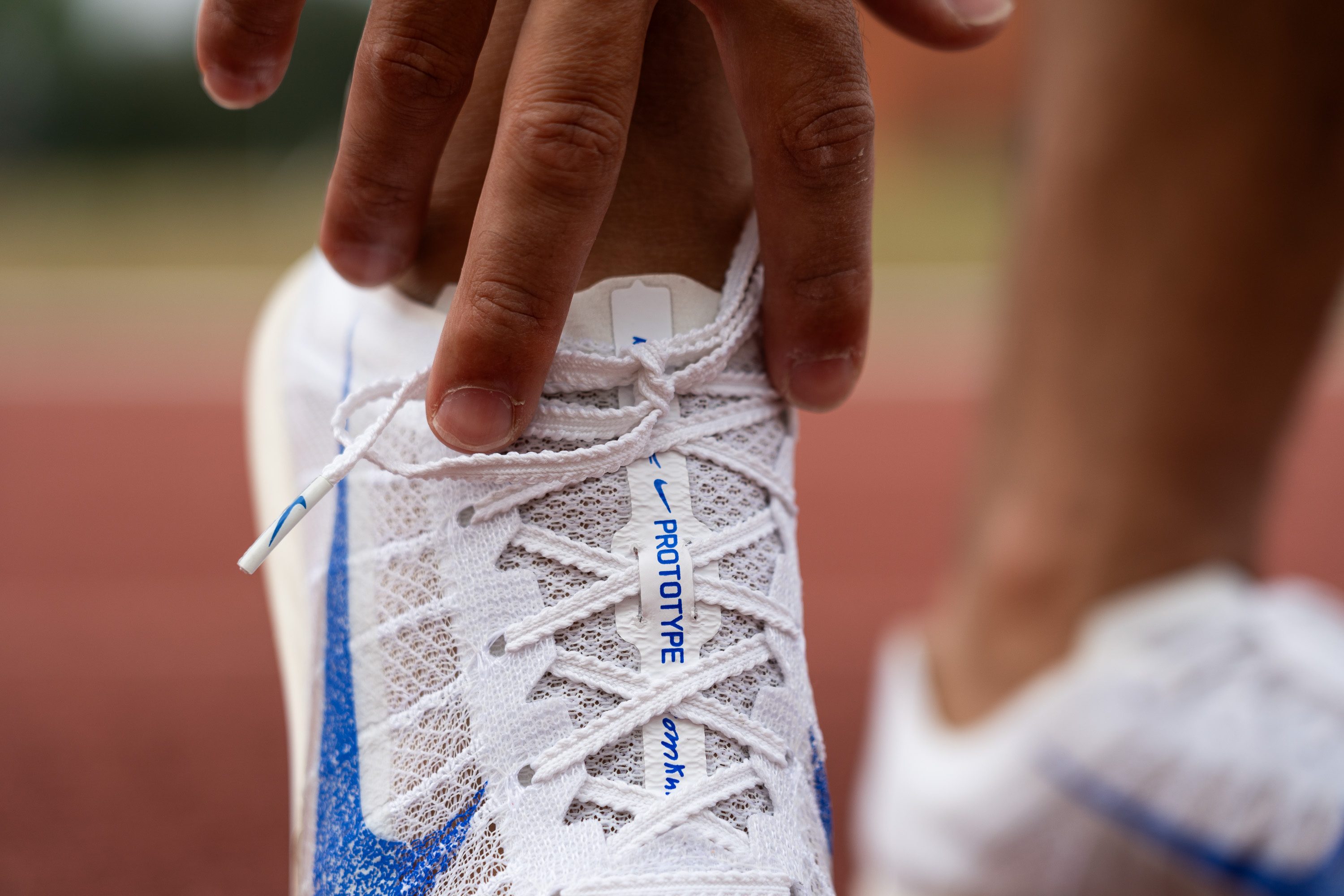
Another standout feature is the notched laces Nike incorporates into most of its competition shoes for road, track, and cross country. They are here too, and we must underscore that these laces significantly enhance security, ensuring they won't come undone mid-race.
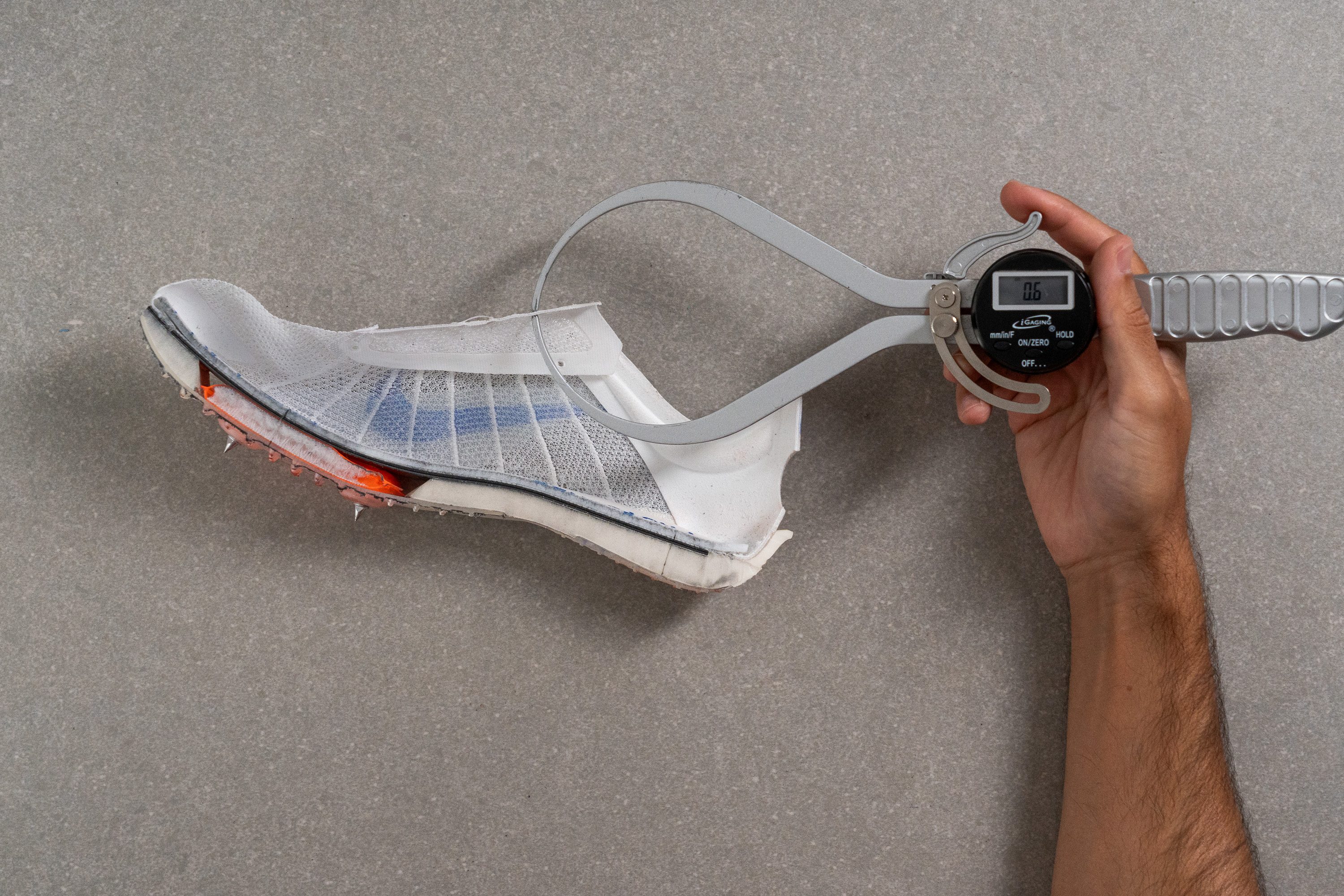
| Victory 2 | 0.6 mm |
| Average | 2.3 mm |
Price
We can't sugarcoat the cost of the Victory 2, yet it's undeniable that it provides all the features sought in a world-class spike—a carbon fibre plate, cutting-edge ZoomX foam, and a propulsive Air Zoom unit. And it looks amazing.
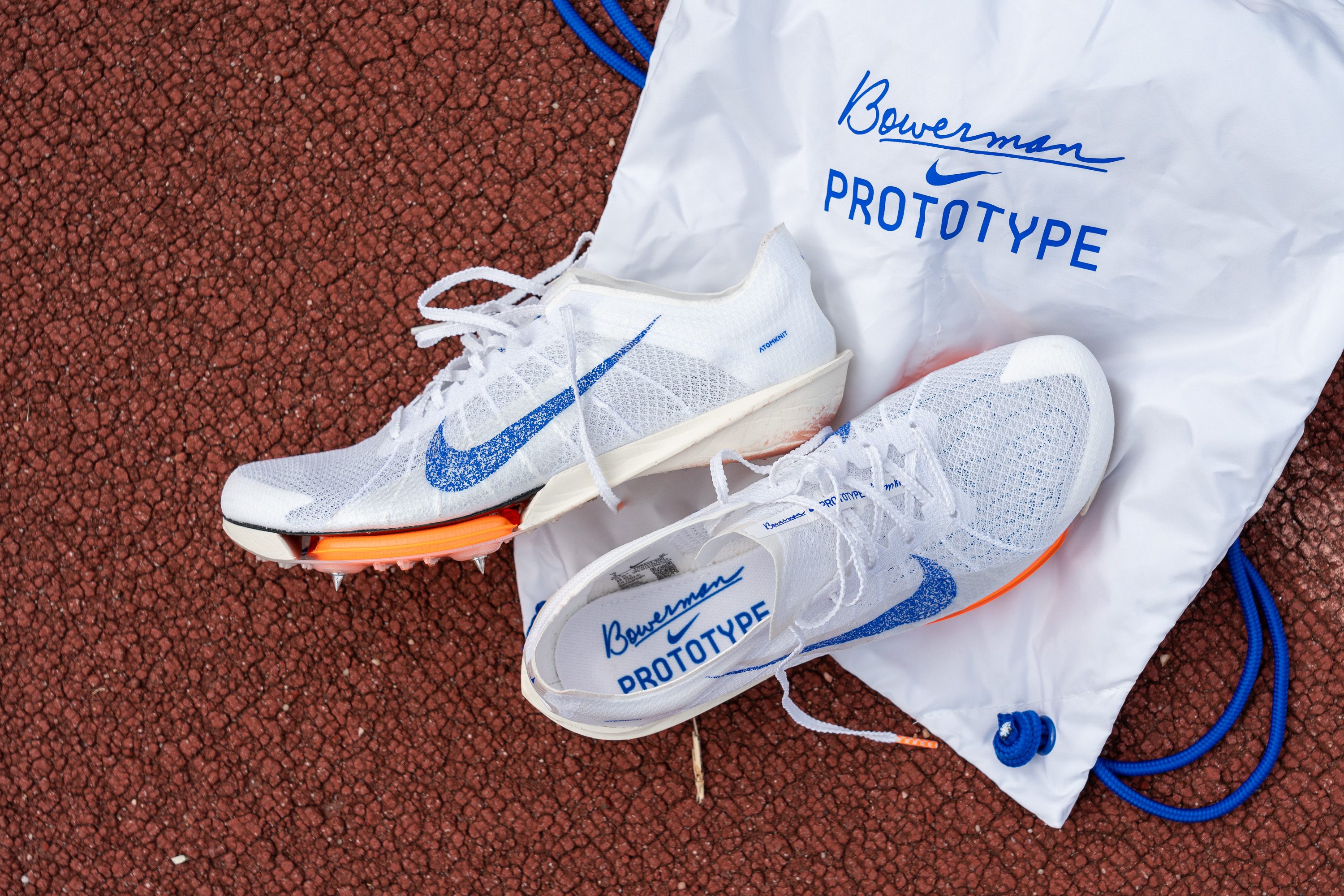
This combination defines it as not only one of the greatest spikes ever made...but also as one of the most expensive.
| Victory 2 | $190 |
Heel tab
The Victory 2 adopts the iconic heel hole design from the Dragonfly series.
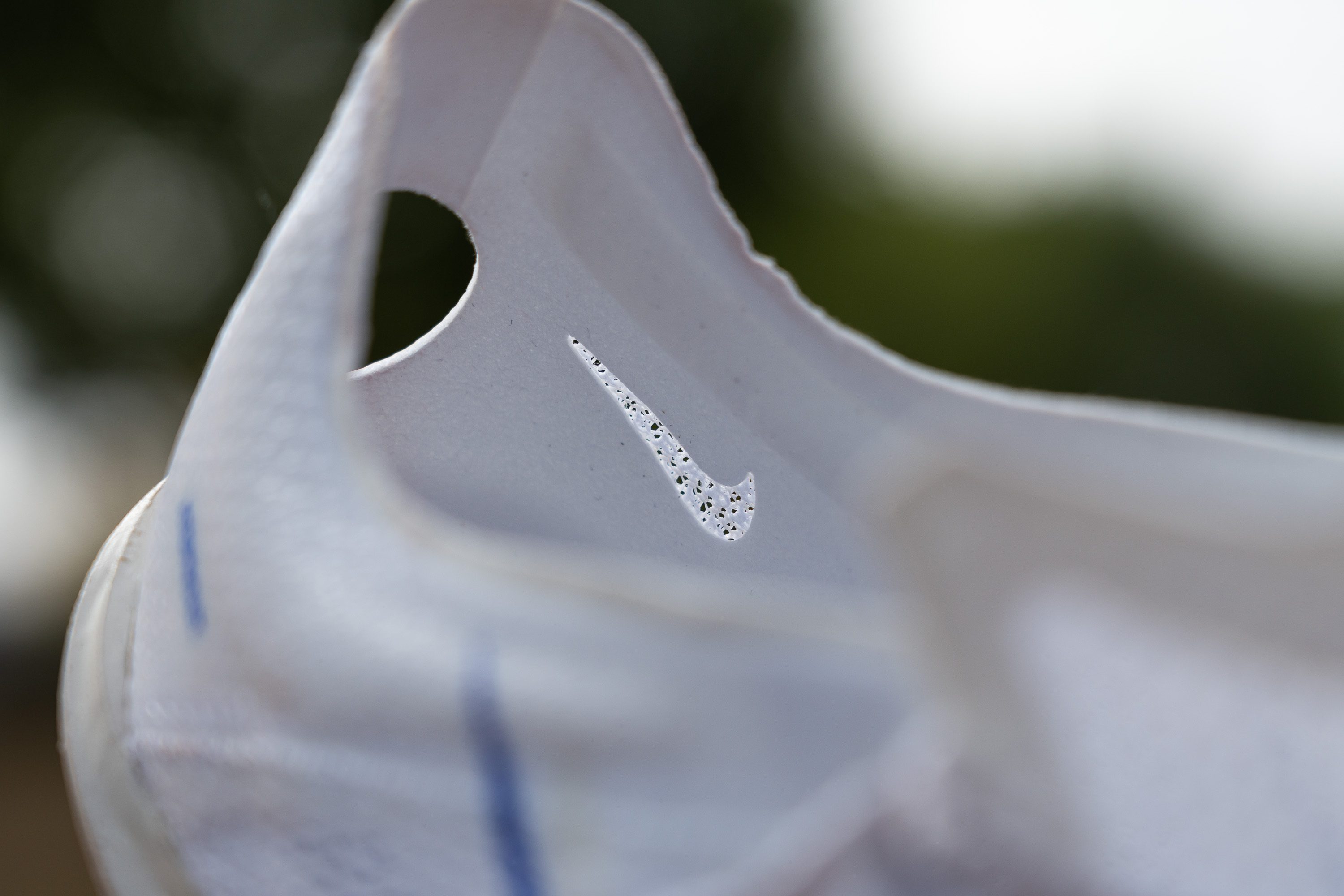
Though it might appear like a knick-knack, it actually plays several roles like reducing weight and enhancing heel lockdown.
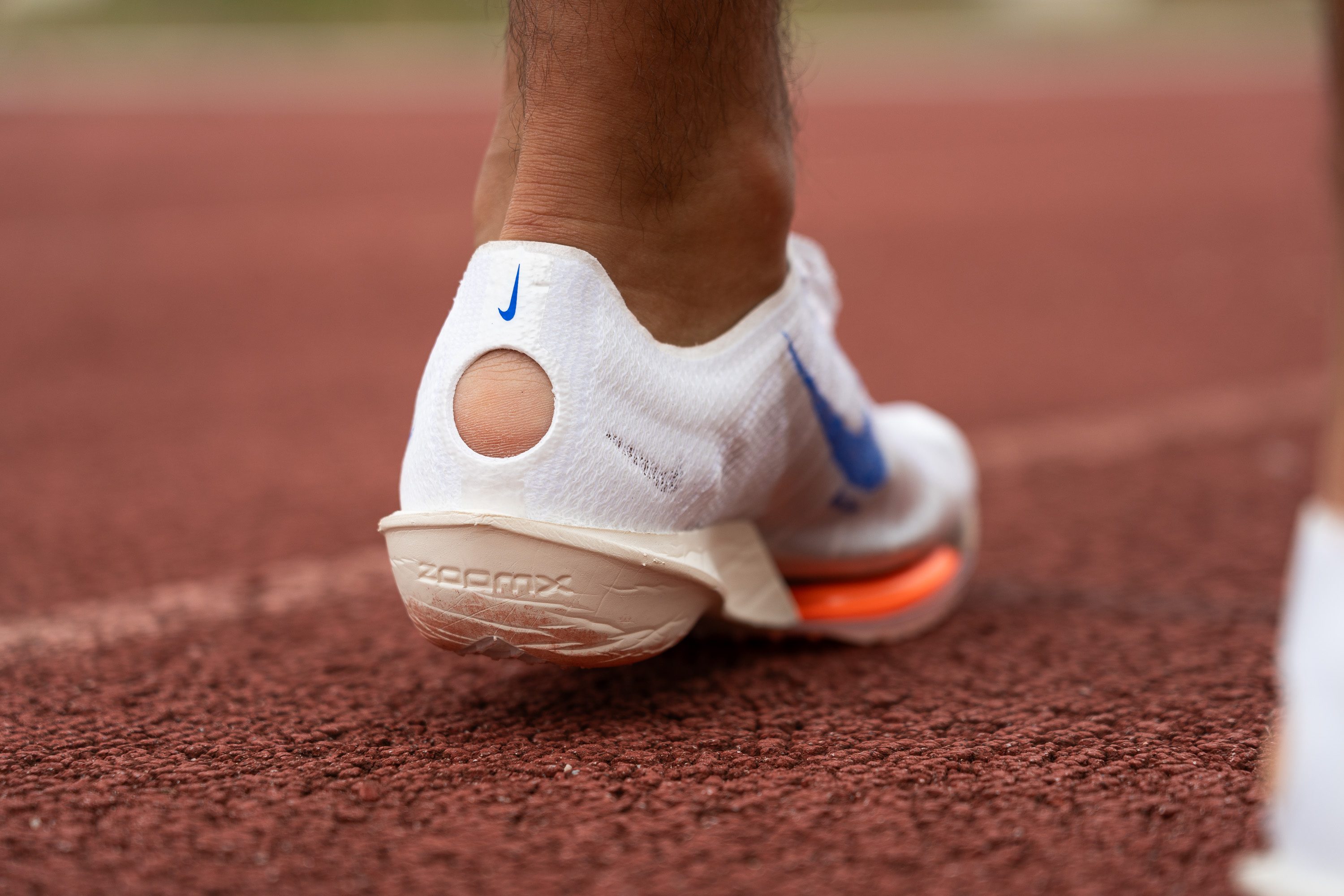
| Victory 2 | None |

